democracynow.org
Stories:

Iowa Progressives Weigh Clinton vs. Sanders as One of Whitest U.S. States Kicks Off Presidential Race
The road to the White House begins in Iowa today with the opening contest of the 2016 presidential campaign. Polls show tight races on both sides. Republican front-runner Donald Trump holds a small lead over Texas Senator Ted Cruz. In the Democratic race, Vermont Senator Bernie Sanders has rallied to close what was once a 40-point deficit behind Hillary Clinton. Iowa is one of the whitest states in the country. But as the first to vote on presidential hopefuls, the Iowa caucus plays an outsize role in the election cycle. Presidential campaigning now starts a year before the opening Iowa contest—that’s nearly two years before the actual Election Day in November 2016. Voters have been treated to months of visits from candidates and more than $150 million in political advertising. We are joined from Des Moines, Iowa, by Ed Fallon, host of the radio show "Fallon Forum" and former member of the Iowa General Assembly; he is backing Bernie Sanders in the race. We are also joined by Wayne Ford, co-founder and co-chair of the Iowa Brown and Black Presidential Forum and a backer of Hillary Clinton. He is a former Iowa state representative and Iowa’s longest-serving black legislator.
TRANSCRIPT
This is a rush transcript. Copy may not be in its final form.
AMY GOODMAN: The road to the White House begins in Iowa today with the opening contest of the 2016 presidential campaign. Voters will gather at 8:00 p.m. Eastern time to select their picks for the Democratic and Republican nomination. The Iowa caucus is different from a normal presidential primary: Party members gather and discuss their preferred candidates before ballots are cast. Caucus sites include homes, churches, gyms, halls, libraries, taverns and grain elevators.
As the caucus gets underway, the campaigns are watching an approaching winter storm that could hurt voter turnout. Polls show tight races on both sides. Republican front-runner Donald Trump holds a small lead over Texas Senator Ted Cruz. In the Democratic race, Vermont Senator Bernie Sanders has rallied to close what was once a 40-point deficit behind Hillary Clinton. Now they are neck and neck. On Sunday, Clinton told Iowa supporters she is the more qualified choice.
HILLARY CLINTON: But it is true, when you go to caucus tomorrow night, you are selecting not only the next president, but the next commander-in-chief. And I feel strongly that our country must continue to lead in accordance with our values, to further our interests, to advance our security. I know what it takes, because of the incredible experience that I’ve had over the years, to see the kind of challenges that come to the president that only the president can decide.
AMY GOODMAN: Sanders’ surge in the polls has been fueled by an influx of young voters and rallies drawing huge crowds. On Saturday, the Sanders campaign said it had raised $20 million in January alone. Speaking to NBC’s Meet the Press, Sanders said he’s drawing voters fed up with the status quo.
SEN. BERNIE SANDERS: Let me just say this. As you well know, when we began this campaign, we were at 3 percent in the polls. We were 50 points behind Hillary Clinton. Today, as you’ve indicated, we’re neck and neck. I think we have a real shot to win this, if there is a large voter turnout. And it’s not just young people. It is working people, it is middle-class people, who are sick and tired of status quo politics. That’s true in Iowa. It’s true in New Hampshire. It’s true all over this country.
AMY GOODMAN: Iowa is one of the whitest states in the country. But as the first to vote on presidential hopefuls, the Iowa caucus plays an outsize role in the election cycle. Presidential campaigning now starts well over year before the opening Iowa contest—that’s nearly two years before actual Election Day in November of 2016. Voters have been treated to months of visits from candidates and more than $150 million in political advertising.
For more, we’re going directly to Des Moines, Iowa, where we’re joined by two guests. Ed Fallon, host of The Fallon Forum, which airs on two radio stations in Iowa, he served as a member of the Iowa General Assembly from '93 to 2006. He is backing Bernie Sanders in the race, just came out and announced that. Wayne Ford is co-founder and co-chair of the Iowa Brown and Black Presidential Forum and a backer of Hillary Clinton. He's a former Iowa state representative and Iowa’s longest-serving black legislator, having served for 14 years from 1997 to 2010.
We welcome you both to Democracy Now! Wayne Ford, let us begin with you. Give us the lay of the land. I mean, you have Iowa, one of the whitest states in the country, behind, what, Maine, Vermont, New Hampshire—which is the next primary state—West Virginia, and then Iowa. It is determining—it is setting the stage. I mean, the person who wins is not necessarily the one who will win for president, but it really sets the tone for the entire presidential race. Can you talk about your state?
WAYNE FORD: Yes, I can, Amy. First of all, I’m very proud that we were the state that had got President Obama started, although we are the fifth whitest state. But just by electing the first black president means that people in Iowa, we look at the message, not the color. When Jesse Jackson ran in 1988, I had a meeting with him. I said, "Jesse, won’t you put your headquarters in Des Moines?" He said, "Wayne, I don’t want to be in Des Moines. I want to be in Greenfield, Iowa." So he went to a white community, set up, and to this day, they still talk about Jesse Jackson. So, if you move a color issue and put it on message, since 1976, when Jimmy Carter came here and said, "I’m just a peanut farmer, I’m from the South"—so, I hear you, and plus we’ve got the highest voter turnout during presidential elections in America. We’re at almost 70 percent. So there’s no other state that can say during a vote time that high a percentage vote, although we’ve got a small population, Amy. I’m very proud of what we have done as a state by keeping these candidates on message.
AMY GOODMAN: What are some of the key issues that Iowans care about, Wayne Ford?
WAYNE FORD: From my perspective, when Hillary said criminal justice—we’re not too far from Ferguson, Missouri; Minneapolis; Kansas City. We’re in the Midwest. We have a lot of challenges here when it comes to race. Criminal justice is the issue that people are telling me—talk to me about. I’ve got young black men in innercity Des Moines who are saying, "Wayne, I’ve got a terrorist problem in my neighborhood. I don’t need to go overseas. I’m scared to walk across the street." So whether it’s Minneapolis, whether it’s Chicago or Ferguson, you have a lot of black people in this part of the world who are really concerned about criminal justice. Lady Justice, she needs to be color blind, but many times she’s not. We’re one of the highest-ranking incarceration of black men in the country. We’ve got some challenges. Hillary said that will be her number one priority, reforming criminal justice, once she gets to—once she gets in office.
AMY GOODMAN: Now, I didn’t plan to get right into it. You two have both just recently endorsed candidates. Wayne Ford, were you with the Clintons this weekend?
WAYNE FORD: Yes, yes. I was very happy. But I didn’t make my endorsement until after the Brown and Black Presidential Forum. The Brown and Black Presidential Forum is the oldest minority forum in America. And I made a decision many years ago that I would never make a decision 'til people come to my forum. I was on the front row. I got a good example to listen to everybody. But when she mentioned criminal justice, when she mentioned from the grave—not to the grave, but when she mentioned from birth to college and to the cradle, I understood that. So she mentioned some things that were very exciting to me, and that's why I was very happy to be with the Clintons this past week.
AMY GOODMAN: Well, we’re going to go to some of the clips from that forum, but I want to bring Ed Fallon in, radio host who has just recently endorsed Bernie Sanders. First, Ed, talk about what you think is most important for people to understand about Iowa, and then we’ll have a little debate, discussion, about who you’re both endorsing.
ED FALLON: Well, Iowa is more diverse than most people think, and we are more urban than most people think. But rural issues obviously are very, very important here. One thing I’ve been very interested to see is the growth in interest about climate change. That issue has gone from very little conversation to quite a lot. There’s been a whole bunch of nonprofit organizations that have been helping to push that issue along, including The Climate Mobilization, which just staged a Climate Emergency Caucus, which Bernie Sanders won hands down. He cleaned up at it. I mean, I think there’s a real strong sense that Sanders is the best candidate to deliver the emergency economic transformation we need to fight climate change. And so that’s why I—that’s why I came around to endorsing him after that event.
But the other issue that’s of a particular interest to me is this proposal for a new pipeline across Iowa. You know, with the Keystone pipeline dead and the oil industry still wanting to get that Alberta tar sands oil to market, they’re trying to build a pipeline through Iowa. And that has united libertarians, environmentalists, landowners, farmers. And at first, like a year ago, you wouldn’t hear any candidate mention it. And now Bernie Sanders is in fact running advertisements about his opposition to it on the radio. He’s got fliers. He’s talking about it in every speech he gives. So, to me, it’s really encouraging to see that at least one candidate on the Democratic side and actually Rand Paul on the Republican side have both come out against that issue, because that ties so strongly into not just the issue of climate change and water quality, but also of land rights. You know, to think about how the government would have to approve eminent domain for a private oil company in order to take the land needed, it’s so wrong, and it riles people up in the state. About 75 percent of Iowans polled are against the use of eminent domain for that pipeline. So I’m actually surprised more candidates haven’t come out against it. We haven’t heard a word from Hillary Clinton on it, by the way.
AMY GOODMAN: Let’s go to break, and then we’re going to come back to this discussion. Wayne Ford is with us, co-founder of the Iowa Brown and Black Forum. He has just endorsed Hillary Clinton, where—he’s in Des Moines and former state—he’s also a former state legislator. And Ed Fallon, the radio talk show host, who served in the Iowa General Assembly has just come out and endorsed Bernie Sanders. We’ll be back with them in a minute.
[break]
AMY GOODMAN: "Be Careful" by Sunnyland Slim, here on Democracy Now!, democracynow.org, The War and Peace Report. I’m Amy Goodman. It is Iowa caucus day. Tonight, 8:00 Eastern Standard Time, people will be going to the polls in Iowa to discuss and debate their choices. I want to turn to a clip of Democratic presidential candidate Hillary Clinton at the Iowa Brown and Black Presidential Forum last month. She was asked how her administration would prove that black lives matter.
HILLARY CLINTON: I’ve met, as you probably know, with a very dynamic group of young Black Lives Matter activists and have heard directly from them. And there’s a broad agenda that we’ve got to address. Let’s start with the most contentious issues—criminal justice reform, policing reform, incarceration reform. And I believe strongly that this has to be the highest priority of the president. President Obama’s policing commission has some very good suggestions that I would want to build on. But we have to do everything possible in reaching out and listening directly to communities that are being affected, whose trust has been betrayed and broken, whose families are desolated by the large numbers of missing men in the communities.
And I have a very specific set of recommendations about what I would do. When it comes to arrest, we’ve got to have a much clearer set of standards, because African-American men and Latino men, in particular, get arrested more quickly for doing the same thing as a white man does. And then it continues through the process—more likely to be charged, more likely to be convicted, more likely to be incarcerated. And the figures don’t lie.
AMY GOODMAN: And this is Hillary Clinton at the [Brown and Black] Forum when one of the audience members asked her about what white privilege meant to her.
HILLARY CLINTON: It is hard when you’re swimming in the ocean to know exactly what’s happening around you, so much as it is when you’re standing on the shore perhaps watching. For me, you know, look, I was born white, middle-class in the middle of America. I went to good public schools. I had a very strong supportive family. I had a lot of great experiences growing up. I went to a wonderful college. I went to law school. I never really knew what was or wasn’t part of the privilege. I just knew that I was a lucky person and that being lucky was in part related to who I am, where I’m from and the opportunities I had.
AMY GOODMAN: That was Hillary Clinton at the [Brown and Black] Forum of Wayne Ford, who co-founded it. He’s in Des Moines right now. The significance of what Hillary Clinton said, Wayne Ford?
WAYNE FORD: Well, Amy, it meant so much to me. First, I want to knowledge my co-chair, Mary Campos, who is the co-chair of the Latino component to the Brown and Black. And I want to thank Fusion TV for doing a wonderful job. When she talked about white privilege, I was watching the audience. I mean, it was our show. And everybody got quiet, because to ask a white person how they feel about white privilege, coming from a Latino. The way she answered that, I mean, I watched Hillary grow to what—how she delivers, how she deals with her crowd. As you and I both know, Black Lives Matter, earlier in the session, there was a little confrontation. But Hillary has learned along this journey to work with people. And that question, she was very calm about it. So, besides that and criminal justice, when she talked about those two issues, that’s when I decided to put my support behind Hillary.
AMY GOODMAN: I wanted to ask you about a quote of Michelle Alexander, who just posted this on Facebook this week, the author of The New Jim Crow: Mass Incarceration in the Age of Colorblindness. She said, "If anyone doubts that the mainstream media fails to tell the truth about our political system (and its true winners and losers), the spectacle of large majorities of black folks supporting Hillary Clinton in the primary races ought to be proof enough." She said, "I can’t believe Hillary would be coasting into the primaries with her current margin of black support if most people knew how much damage the Clintons have done—the millions of families [that were] destroyed the last time they were in the White House thanks to their boastful embrace of the mass incarceration machine and their total capitulation to the right-wing narrative on race, crime, welfare and taxes." And she goes on from there. Your thoughts on this, Wayne Ford?
WAYNE FORD: People have a right to say what they want. I’m from Washington, D.C. I’m well aware of the criminal justice system, the crack cocaine problem that was in my community, the gangs, the killings in the street. Black leaders went to Congress and asked them, "We need help. We need help." President Clinton was president at that time. They put the package together. Most of that—some of that package was supported by black leaders in my hometown of Washington, D.C. But let’s talk about timing. FDR was the right president at the right time. President Obama was the right president at the right time. With all the issues we’ve got challenging America now, we need someone with experience. My support goes behind Hillary Clinton.
AMY GOODMAN: Bernie Sanders held a rally in Manchester in eastern Iowa Saturday in one of his many tour bus stops around the state.
SEN. BERNIE SANDERS: Are we a poor nation? No, we’re not a poor nation. We are the richest nation in the history of the world. But the vast majority of the American people don’t know that, because they’re working too hard and they’re struggling too hard to keep their heads above water economically, while almost all of the new income and wealth is going to the top 1 percent. Why? Why do we allow that to happen? Why do we accept that? That is what this campaign is about. And it is saying that the status quo is simply not acceptable. We are going to make fundamental changes in our economy and in our political life.
AMY GOODMAN: That was Bernie Sanders in Manchester, Iowa. Ed Fallon, talk about both what he said here, continually addressing this issue of inequality, as well as why you feel Hillary Clinton does not address this in that way.
ED FALLON: Well, Sanders is right on so many issues to me. I mean, he’s nailing all the top issues. He understands the urgency of climate change. He understands the importance of fighting for—fighting against income inequality. And he understands the importance of getting money out of politics. That’s a huge concern for a lot of people, is the big money that Hillary Clinton has taken and continues to take in her campaign, her very cozy relationship with Wall Street. And we need somebody who’s going to fight Wall Street, not go along with it. And unfortunately, that’s what’s been happening. Even the reforms that happened after the last crash, those aren’t doing anything for the average person. So, you know, we really have to look at who has been the fighter for rank-and-file Americans all along.
I mean, Secretary Clinton, as much as I might respect her, she has changed her positions conveniently all the time. I mean, the things we hear her saying now during the campaign, I do not think she’d be saying anything about opposing the Keystone pipeline, for example, or calling herself a progressive or all these other things she’s talking about. I think that’s happening because you’ve got Senator Sanders pushing her in that direction. And it’s a direction, again, that—you know, experience is great, but if your experience also means you make the wrong decision a lot of times, like on the Iraq War, again on Keystone, on Glass-Steagall—I mean, you know, Sanders is for the movement to get the minimum wage to $15 an hour. Senator Clinton is not. And I can’t think of a better program to help lift people out of poverty than a minimum wage that is actually a livable wage. And that’s a huge distinction right there.
AMY GOODMAN: Let me ask each of you, since you came out only recently in endorsing your candidates. Wayne Ford, was it a tough decision for you? Could you support Bernie Sanders?
WAYNE FORD: Last time I was in this situation, I supported President Obama. And before that, I supported—I mean, I can go back—go from Mondale, Jimmy Carter. I’ve been doing this for a very long time. I’ve always waited to make the right decision. But let me be candid. Whoever the nominee is—I’m a Democrat—I will support the nominee. But as of right now, my thought pattern was: I will make my decision once I look at the Brown and Black Forum. I had a front row seat. I watched faces. I watched the emotion. I’ve been doing this since 1984, so it’s kind of hard to fool me. And each time I’ve done this, I’ve chose the person who I thought meant that much to me to make America more safer, and I think president—you know, a President Clinton would be the person that can do that.
AMY GOODMAN: And, Ed Fallon, would you support Hillary Clinton if she were the candidate?
ED FALLON: Well, I would, but I can’t promise that all of Bernie Sanders’ supporters would. See, that’s a big concern that I have. I mean, if you look at the polling itself, against Trump, Cruz or other Republican nominee possibilities, Clinton does not do as well as Sanders. Sanders beats them by greater margins. And I think part of that is, there’s a lot of folks who are coming into Bernie Sanders’ campaign who are new to this, who have never felt empowered by a candidate before, finally somebody who is speaking their language. I mean, here’s a guy who’s in his early seventies speaking to young people. Young people are rallying behind Sanders by a huge margin here in Iowa. And I think some of them are going to feel discouraged and probably not want to vote, and that would hurt Senator Clinton’s chances in the general election. So, you know, I will certainly support her, but I can’t say that all the Sanders supporters will.
AMY GOODMAN: Ed Fallon, can you talk about those who are saying they’re deciding between not Clinton and Sanders, but Trump and Sanders?
ED FALLON: Yeah, I understand that, because Donald Trump, for all his insanity, is—is pegging himself as outside the establishment, which is actually remarkable, because I can’t think of a more establishment candidate than Donald Trump. But he is appealing to some of the same anti-status quo sentiment that Bernie Sanders is raking in. And I think the more people see and hear of Trump, you know, the less likely they are to continue to support that. But with Sanders, it’s sincere, it’s long-held. I mean, his consistency throughout the decades is incredible. And, you know, with Trump, again, like Clinton, you see positions being taken, statements being made, that are fairly new to that person’s rhetoric. And I think at some point the majority of people are going to start getting tired of that, again, especially with Trump. I mean, I don’t to compare Trump with Clinton to any great extent, because obviously she’s got a much more encouraging track record than Trump. But I think people are going to get tired of that really soon. I don’t know how far he’s going to get. What happens tonight is going to be fascinating to watch.
AMY GOODMAN: Well—
ED FALLON: But I think at some point that that support he has is going to be seen as just very, very shallow.
AMY GOODMAN: Wayne Ford, can you talk about the Trump phenomenon, that’s even surprised Trump himself, who said recently that he could go out and shoot someone on Fifth Avenue and still win?
WAYNE FORD: Amy, let me talk about that statement. Young people come to me all the time. My nonprofit, Urban Dreams, is 30 years old. I’ve had so many young black people come to me and said, "Wayne, if we made that statement, they will put us in jail." That’s what I’m kind of talking about. Now, America has to make a decision. Millennials—I got that. I know Bernie is doing well with college campuses and all that. But let me be candid. Here is what I’m hearing. Here in Iowa, since we’re the first people who are going to call this, I’ve heard more millennials who got in contact with me and said they’re going to support Hillary, because she has the experience, and she has the season. Some of these people can’t even pay rent. They’re living with their parents. Now, bottom line is, in their generation, they were told it’s going to live less than us baby boomers, that’s going to make less money than us baby boomers. I’ve got young people saying, "If I walk around saying I was going to kill somebody, I’ll be put in jail." America must make a decision. We need somebody serious. And that’s why I’m excited, I’m so excited, to support Hillary, just on the question you just asked. We need to start getting real. My son said, "Daddy, I’m not going to live long as you." That bothers me.
AMY GOODMAN: And the issue of the evangelical vote, talk about how significant it is. Is the evangelical population actually decreasing in Iowa? And what are the concerns of evangelicals?
ED FALLON: Did you want to hear from me on that?
WAYNE FORD: Who are you talking to, Amy? Who do you want?
AMY GOODMAN: Well, Ed Fallon.
ED FALLON: OK, the—it’s hard to say. I mean, the evangelical wing of the Republican Party has been very effective at electing—at choosing a candidate that represents that position. I mean, we had Santorum last time and Huckabee the time before. But I think that wing of the party, Republican Party, tends to get really tired really fast. If you don’t win the first time, you’re out. I mean, Santorum and Huckabee are polling at 2 percent here. Cruz is the new, I think, candidate of the day for that wing of the party. But, you know, about 40 percent of Iowa Democrats caucus; about 20 percent of Iowa Republicans caucus. So we have twice as much participation. If more mainstream-type Republicans were to participate, that element of the Republican Party would probably be a lot less influential. What’s going to happen tonight is hard to say. I mean, it very well could be a Cruz victory, given the fact that evangelicals tend to be rallying behind him. But I do think—to the real crux of your question, I do think, overall, we’re beginning to see a little bit of erosion of the centrality of that element within the Republican Party.
AMY GOODMAN: And that issue of the big storm coming in and how much—well, how important, Wayne Ford, voter turnout is, and how you maximize it?
WAYNE FORD: Well, good question, Amy. But I’ve been doing this—my first presidential forum was in 1976, when Jimmy Carter, Birch Bayh and Sargent Shriver sent their surrogates to the innercity. I was a young kid. I was at Drake University. It was a storm back then. When Vice President Biden ran, he took a private plane to get to my event. Mondale missed it because of a storm, but he got a—he got a plane and came in later. Whether it storms or not, we lead the country. We’re number one. And I think Iowans will do their due diligence. I mean, we will do it. This is not the first storm. I mean, I see the weather getting just as much as attention as these presidential candidates. Let me be clear: I’ve been following this since 1976. We have the oldest process, the best process, and a storm is not going to stop us. We will support—we will be out there tonight. And I’m just excited to be involved.
AMY GOODMAN: We’re going to break and bring on some new guests in Des Moines. I want to thank Wayne Ford, co-founder of the Iowa Brown and Black Forum, former state legislator; Ed Fallon also, radio host who served in the Iowa General Assembly. Ed endorsed Bernie Sanders, and Wayne Ford endorsed Hillary Clinton. This is Democracy Now! Yes, today is the first of the presidential nominating contests, and it’s in Iowa. We’re talking to folks in Des Moines. Stay with us.
... Read More →
Bernie Sanders Says No to Fracked Oil Pipeline in Iowa, Will It Help Him in Today's Caucus?
As the nation focuses on the Iowa caucus, we turn to a local issue that has received little attention. Iowa is facing a growing debate over the Bakken pipeline, a proposed crude oil pipeline that would run diagonally across the state. During his stops in Iowa, Bernie Sanders has used the pipeline to highlight differences with rival Hillary Clinton. We are joined from Des Moines by journalist and historian Jeff Biggers, a writer-in-residence and the founder of the Climate Narrative Project at the University of Iowa.
TRANSCRIPT
This is a rush transcript. Copy may not be in its final form.
AMY GOODMAN: As the nation focuses on the Iowa caucus, we turn to an issue that has received little attention: a growing debate in Iowa over the Bakken pipeline, a proposed crude oil pipeline that would run diagonally across Iowa. Bernie Sanders recently ran a campaign ad featuring a pair of farmers talking about his position on the pipeline.
GEORGE NAYLOR: My family has lived on this farm for three generations. The Bakken pipeline would pump dirty crude oil across Iowa.
PATTI EDWARDSON: The fact that Bernie Sanders stands up against the pipeline is one of the reasons we support him.
GEORGE NAYLOR: Bernie Sanders didn’t hesitate to say no to the big oil companies.
PATTI EDWARDSON: Bernie knows that if we don’t act, we threaten the climate and the health of our children.
GEORGE NAYLOR: Bernie Sanders understands that.
PATTI EDWARDSON: Bernie Sanders has the guts to just stand up for what he believes in.
SEN. BERNIE SANDERS: I’m Bernie Sanders, and I approve this message.
AMY GOODMAN: While the Bernie Sanders ad doesn’t mention rival Hillary Clinton, on the campaign trail, the Vermont senator has used the pipeline to highlight differences between the two campaigns.
Joining us now from Des Moines is Jeff Biggers, a journalist and historian, writer-in-residence and founder of the Climate Narrative Project at the University of Iowa. He recently wrote a piece in Huffington Post titled "Iowa’s Climate Vote: Sanders Victory Will Put Climate Action Back in National Debate."
There is a lot of activism on campus, Jeff. Talk about the Bakken pipeline, what it is, why people should care.
JEFF BIGGERS: Sure. You know, Amy, this is a pipeline that sort of has flown under the radar, I think, of a lot of the national media but really is a big issue here in Iowa, especially for farmers, for environmental activists and for climate activists. If it goes through, this will be a half-million barrels of oil that will be coming from the fracking fields of North Dakota completely across the state, going to the southern tier of the Midwest and the South. And it’s really become a bit of a litmus test for a lot of people with the candidates. I think what has encouraged a lot of people is that Bernie Sanders has been in the forefront and said he’s against the Bakken pipeline, and he’s actually taken a position. And that’s very much united farmers with environmentalists and students to side with Bernie Sanders as really the main climate action candidate this year.
AMY GOODMAN: Can you talk overall, give us a lay of the land of Iowa and the energy issues that are of great concern to Iowans?
JEFF BIGGERS: Sure. I think what’s unusual about Iowa—I first came here in 1984 to work in the campaign, and it’s a completely different issue. You have a completely different narrative going on right now and a different group of people who are working together. Thirty percent of the electricity in Iowa is produced by wind energy, and that has brought together a unique network of both farmers, of business people, of Republicans and Democrats, of students and climate activists, who really are in the forefront of the clean energy revolution. At the same time, they’re quite concerned about other issues. And I think this is where they’re looking at Bernie Sanders for leadership. He is the only candidate who has been in the forefront of taking on the fossil fuels lobby, of refusing to take money from fossil fuels lobbies, someone who’s against any kind of fossil fuel subsidies, and someone who has, you know, been in the forefront, long before President Obama, to say that we have to end coal extraction on public land.
AMY GOODMAN: Jeff Biggers, talk about what you mean by the subsidies. Talk about what you mean by the fossil fuel subsidies, that I don’t think a lot of people actually understand how the system works.
JEFF BIGGERS: Right. I think it’s one of the incredible stories that’s often gone unreported, is the fact that we provide billions of dollars in subsidies, both tax breaks, tax credits, and actual gifts to the coal industry, the oil industry and the natural gas industry. If you take Illinois, for example, which is right next to Iowa, they receive millions of dollars, both from the state but also from the federal government. And this is something that Bernie Sanders has been in the forefront to say that we have to end these subsidies and transfer them over to clean energy development. And once again, pointing out that kind of issue, which is critical to any kind of a clean energy revolution, beyond a lot of the sort of well-meaning talk, is something that people are paying attention to, and it’s really mobilizing voters, I think especially the students and especially people in the rural areas.
AMY GOODMAN: I want to turn to Republican presidential candidate Ted Cruz, who’s come out against federal ethanol subsidies, drawing criticism from Iowa Governor Terry Branstad and GOP front-runner Donald Trump. Cruz was questioned on his position Sunday by Meet the Press host Chuck Todd.
CHUCK TODD: Isn’t it understandable why Iowans like these subsidies? Ethanol and biodiesels support more than 46,000 jobs. They’ve generated $2.5 billion in income for Iowa households. This is a state with unemployment under 4 percent. This is an important part of their economy.
SEN. TED CRUZ: Oh, absolutely. And listen, my view on energy, we should pursue all of the above. We ought to be pursuing every energy source.
CHUCK TODD: You’re going to be hurting their economy.
SEN. TED CRUZ: But with no mandates and subsidies. And you know what? The people who are attacking me on this are lobbyists and Democrats. And the reason they’re attacking—
CHUCK TODD: Governor Branstad? Is he a lobbyist or a Democrat?
SEN. TED CRUZ: No, his son is a lobbyist who makes hundreds of thousands of dollars lobbying on ethanol. So his family makes a ton of money. And the lobbyists very much want to keep Iowa focused on the ethanol mandate, because it keeps Iowa dependent on Washington. It means every year they’ve got to go back to Washington and maintain the mandate. The lobbyists get paid, the politicians get paid. I’m going to eliminate all the subsidies—no subsidies for oil and gas, no subsidies for anybody.
AMY GOODMAN: That’s Senator Ted Cruz of Texas, presidential candidate. The significance of what he’s saying, Jeff Biggers?
JEFF BIGGERS: You know, Cruz really stands alone as the only candidate, both on the Democrats and Republicans, who doesn’t support subsidies in the ethanol industry here in Iowa. I mean, let’s just be frank about it. Coal—I mean, excuse me, corn really is one of the defining features in this state, both in the economy and in the politics. And to come out on something like that is quite unique. Both the Democrats, like Sanders and Hillary Clinton, and O’Malley, of course, support the Renewable Fuel Standard. So I think what people have seen is that Cruz is making a major departure and major challenge to what has been very much the norm here in Iowa politics.
AMY GOODMAN: Overall, tonight, the issue of the climate, the big storm that could hit Iowa, talk about—Jeff, on campus, where you are, the University of Iowa, you run this, what, Climate Narrative Project at the University of Iowa.
JEFF BIGGERS: Right. What we’re—
AMY GOODMAN: How important is climate to Iowans?
JEFF BIGGERS: Sure. You know, I was at Bernie Sanders’ rally on Saturday. It was the largest rally so far here in Iowa. Over 4,000 students showed up, and many more were actually left outside the Field House. Probably one of the biggest issues, clearly, that brought a lot of the students there was whether or not we’re going to have some action on climate change. The most organized sectors on campus among the students are the climate change groups, who are working and have a very good ground game to get their students to the caucuses. And so, I think these are students who really are facing the future, who realize it’s not enough just to sort of say that you believe in climate change, and you want to have some sort of action, it’s not enough to say you just want to put solar panels on a certain percentage of our households, but who want to see, you know, a really hard-nosed climate action plan. And that has really put Bernie Sanders in the forefront.
What we have done on the campus is to try to come up with a new climate narrative, a new way to talk about energy that can reach more people and in fact mobilize more people to do something about it. And I think this campaign in Iowa is very reflective of it. I think people often see Iowa as a flyover state. And why is—why do we have the caucus in Iowa? And, in fact, Iowa has been in the forefront of the clean energy movement across the state and could very much set the pace and set a very high bar for what candidates have to do when they talk about climate energy, climate change and clean energy.
AMY GOODMAN: Jeff Biggers, I want to thank you for being with us, journalist, historian, writer-in-residence, founder of the Climate Narrative Project at the University of Iowa, co-author of, most recently—we are talking to Jeff Biggers, but we’re going to switch right now to talk about caucus day.
... Read More →
From Taverns to Grain Elevators: How Iowa's Complex Caucus System Works
The Iowa caucus is different from a normal presidential primary: Party members gather and discuss their preferred candidates before ballots are cast. Caucus sites include homes, churches, gyms, halls, libraries, taverns and grain elevators. Turnout varies by community, with up to 1,000 people typically gathering in cities like Des Moines, while a few dozen or less may gather in more sparsely populated areas. At stake is just 1 percent of the delegates candidates needed to win their party’s nomination. Democrats and Republicans each have their own rules over how to caucus. To help us understand what will actually happen tonight, we are joined by Hugh Espey, executive director of Iowa Citizens for Community Improvement.
TRANSCRIPT
This is a rush transcript. Copy may not be in its final form.
AMY GOODMAN: We’re going to switch right now to talk about caucus day. What exactly are the Iowa caucuses, the first nominating contest of the 2016 presidential race, voters heading to 1,100 schools, churches, libraries, other locations across Iowa tonight at 7:00 p.m. Iowa time? Turnout varies by community, with up to a thousand people typically gathering in cities like Des Moines, while a few dozen or less may gather in more sparsely populated areas. At stake is just 1 percent of the delegates candidates need to win their party’s nomination. Democrats and Republicans each have their own rules over how to caucus.
To help us understand what will actually happen tonight, we’re joined by Hugh Espey, the executive director of Iowa Citizens for Community Improvement.
Hi, Hugh. Can you lay out for us what is a caucus? How does it differ from a primary?
HUGH ESPEY: Well, a caucus is—you’ve got to spend about an hour or two going to a public meeting, as opposed to a primary, where you go during the day and cast your ballot over a 10- or 12-hour period. A caucus is—starts at 7:00 tonight, and it’s a community meeting, where you’re meeting with your friends and neighbors, and you’re picking a presidential nominee.
AMY GOODMAN: So, but explain, for people who are not—don’t come from Iowa. You go into a room, and you don’t just vote like you do in other states. Explain what you do.
HUGH ESPEY: OK, so there’s going to be 2,000 of those meetings across the state tonight. And the Republicans—this is a little bit different than the Democrats. They show up at a caucus site. It could be a school, could be a church basement, could be a library. And there’s—at the beginning, there’s going to be endorsements or speeches from various folks that support candidates. And then the people at the Republican caucuses then cast a secret ballot. And then the ballots are tallied, and the votes are apportioned accordingly.
The Democratic caucus is a little different. Democrats, you show up at your caucus site. You know, you kind of get—you hear some speeches from folks that support different candidates, and then you vote with your feet. So, in a sense, what will happen is the caucus—the person who’s moderating that caucus will say, "OK, the Sanders supporters, you go over to this side of the room. And the Clinton supporters, you go over to this side of the room. And the O’Malley supporters, you go over to this side of the room." So you physically go to different parts of the room, and it’s—you’re voting. It’s public voting. It’s not a secret ballot, so you’re going, you’re voting with your feet. And for your candidate to be viable, you need to have—in the Democratic caucuses, you need to have 15 percent of the caucus goers there supporting your candidate. So if you’re at a caucus site and there’s a hundred people there, for any one particular candidate to be viable, they need at least 15 of those [ 100 ] people there. If you don’t meet that viability test, then you either split up and you go to another candidate or you can abstain.
So, that’s what it is. So, with the Democratic caucus, you’re probably going to spend about two hours. And the Republicans are going to probably be just a little bit less. After you do the nominations, then you deal with party platforms. But the exciting stuff tonight is the voting for the nominees.
AMY GOODMAN: Why did the Republicans and the Democrats evolve differently? Why is their process different in the same state?
HUGH ESPEY: You know, why are the Democrats different here in Iowa than the Republicans? Is that what you asked?
AMY GOODMAN: Their system. Why is their system different? You don’t have the same system where they have—where it’s private voting when it comes to Republicans, and you have a whole controversy over this Cruz flier that went out.
HUGH ESPEY: Yeah, I don’t know. I mean, it’s a good question. I’m not sure of the history of it, other than, you know, I guess, as Democrats—and I’m in a caucus, in a Democratic caucus. It’s just like we’re going to go out, and we’re going to tell our votes. And we’re going to, you know, stand up in front of our neighbors and say we support so-and-so. And then, so that’s what it’s going to be. The Democrats are just—make things just a little bit more complicated. You know?
AMY GOODMAN: Well, and how many people actually have not decided by the time they go—I mean, if they’re going to go to the caucus, how many people actually make their minds up in the discussion?
HUGH ESPEY: Well, you know, that’s a good question. From my experience, most of the—the overwhelming majority of folks that are at the caucus have made up their minds. Now, again, you might be—at the Democratic caucus, you might be in a group that is not viable: You do not have 15 percent. And then you’ve got to figure: Am I going to go stand with another candidate, or am I going to abstain? But my experience has been that the folks that go are—know that they’re going to vote for a particular candidate. And turnout tonight is—you know, turnout is a big, big factor. I think the weather is going to be OK. There’s probably going to be over 120,000, 130,000 Republicans turn out, and I think there’s going to be a big turnout on the Democratic side, over 200,000. You know, a big turnout is going to help Sanders on the Democrats, and a big turnout will probably help Trump on the Republicans.
AMY GOODMAN: Hugh Espey, why is Iowa first?
HUGH ESPEY: Well, you know, that’s a good question. Just because—you know, we practice grassroots politics out here. You know, it developed like that out of the party structure back, you know, over 40 years ago. Sometimes people say, "Well, you know, Iowa is a lot different than the rest of the country. It’s older, it’s whiter," and all that sort of thing. And really, I think, here in Iowa, we take our politics pretty seriously. We want candidates to come out. We want to hear what they’ve got to say. We want them to hear what we’ve got to say. So we take the politics very seriously. And really, whether you’re in Des Moines or the middle of Detroit, people are people. You know, we want good schools. We want good jobs. We want to make sure that we’ve got retirement security. So the issues that are important here in Iowa are important across the country. So, it’s, you know—and we give our candidates a good look, and we put them through the paces. And we ask them and we tell them what we want, and we want to hear what they’ve got to say.
AMY GOODMAN: Finally, just for people who have never experienced this before, you’re in this big room, say you’re in the Democratic caucus, and someone goes over, say, to Martin O’Malley, and maybe he doesn’t get the 15 percent that he needs to—for that group to remain cohesive. What happens then? Someone in the room says you have to go to another—you have to go to another group?
HUGH ESPEY: Well, you know, so, after the first initial—with the Democratic caucus, after the first initial division up into the groups, then we’ll do the counting. And if you don’t have—let’s say it is Martin O’Malley. Say you don’t have 15 percent. And then people from the other preference groups, Sanders will approach you, and Clinton will approach you. And they’ll talk about, you know, what issues are important to you and what issues are important to their candidate. And so, they’ll try to convince people to side with them. And what I—you know, what I would say to a candidate or a person that’s standing in a preference group that’s not viable is that if you want to challenge the political establishment and if you want to change business-as-usual politics, then come stand with us, because I think people are fed up with business-as-usual politics and establishment politics. But so, there’s—
AMY GOODMAN: And is there a deadline? What time is it all expected to wrap up tonight, Hugh? Is it, what, 11:00 Eastern time, 10:00 Iowa time?
HUGH ESPEY: Well, you know—well, yeah. I mean, you know, it’s not like a basketball game where you’ve got 20 minutes per half or that sort of stuff. I mean, it could go on. It all depends. I think the—it’s going to be interesting. I think the Democratic caucus sites are going to last longer, because of the preference groups, and there’s going to be some questions about viability in some of those caucuses. So I would say—you know, it starts at 7:00. I think, you know, we’ll have a pretty good idea about 9:00 Central time.
AMY GOODMAN: Well, we’re going to have to leave it there. We do have a deadline. Thanks, Hugh Espey. I’m Amy Goodman. Thanks for joining us.
... Read More →Iowa Caucuses Begin Tonight with Tight Polls on Both Sides
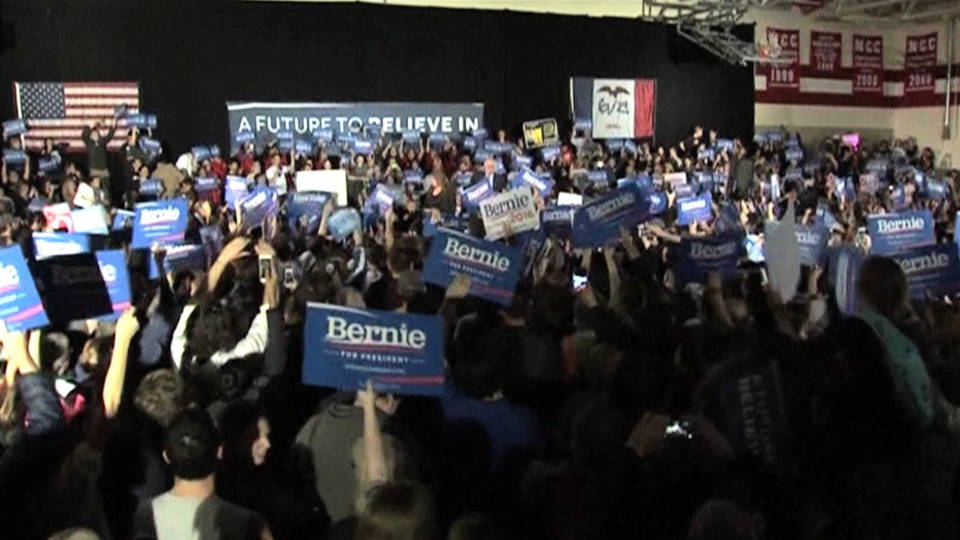
The road to the White House begins in Iowa tonight—one of the whitest states in the country. Voters will gather at 8 p.m. Eastern time to select their picks for the Democratic and Republican nominations. Polls show tight races on both sides. Republican front-runner Donald Trump holds a small lead over Texas Senator Ted Cruz. In the Democratic race, Vermont Senator Bernie Sanders has rallied to close what was once a 40-point deficit behind Hillary Clinton. On Sunday, more than a thousand people gathered to hear Sanders’ final speech before voting begins.
Sen. Bernie Sanders: "And what this campaign is about, of course I’m here to try to win tomorrow night, try to win the Democratic nomination, try to win the general election. But more important and part of that process are millions of people coming together, black and white and Latino, gay and straight, male and female, people born in this country, people who have immigrated into this country. We will not allow Donald Trumps and the other people—we will not allow them to divide us up. We will stand together."
The campaigns are watching an approaching winter storm that could impact voter turnout. As the first in the nation to vote on presidential hopefuls, the Iowa caucus plays an outsize role in the election cycle. Voters have been treated to months of visits from candidates and more than $150 million in political advertising. We’ll have more from Iowa after headlines.
Former Staffer Accuses Trump's Campaign of Sex Discrimination
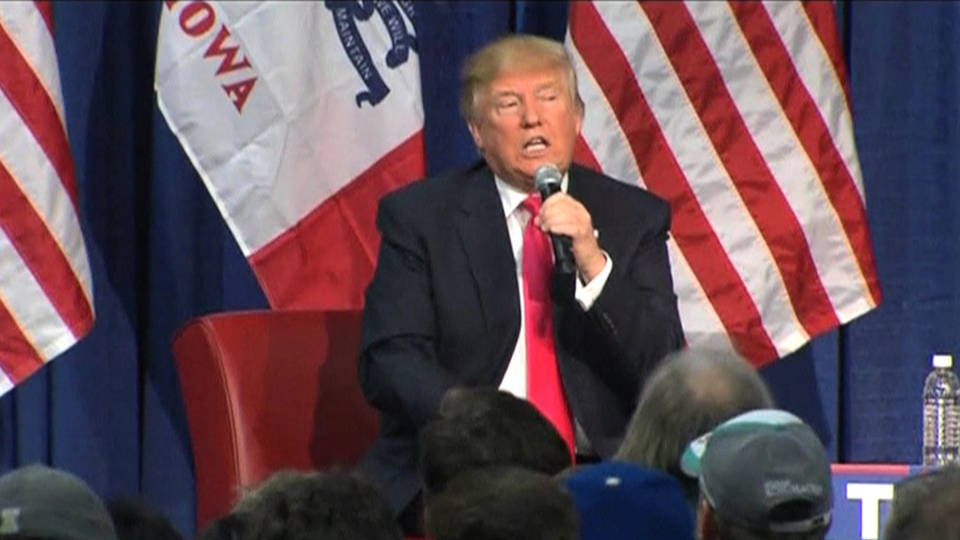
In more news from the campaign trail, a former paid staffer has accused Donald Trump’s campaign of sex discrimination. Twenty-six-year-old Elizabeth Mae Davidson has filed a complaint alleging Trump’s campaign paid male organizers more than female organizers doing the same jobs. Davidson worked for Trump’s campaign as a district representative in Davenport, Iowa. She says she was paid $2,000 a month, while her male counterparts were paid as much as $4,000 a month. The complaint also alleges that Trump told her and another young female volunteer at a rally in 2015, "You guys could do a lot of damage"—a reference to her looks. Trump denied making this remark by telling The New York Times: "That is not the worst thing that could be said. But I never said it."
State Dept. Will Not Release 22 Clinton Emails, Citing "Top Secret" Material
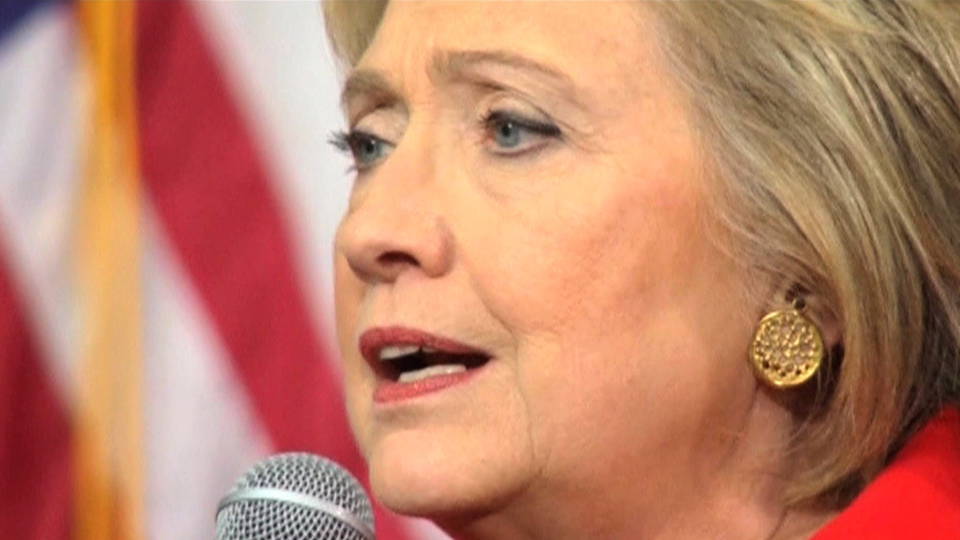
The State Department has determined at least 22 of Hillary Clinton’s emails sent over her private server contained highly classified information. This comes amid a months-long inquiry into Clinton’s use of a private email server while she was secretary of state. Clinton has previously said none of the emails she sent or received were marked classified at the time. The State Department says while they were not deemed classified when they were sent, they will not make public at least 22 emails now because they contained material that was "top secret."
Syria: ISIL Attacks Dozens at Revered Shia Mosque
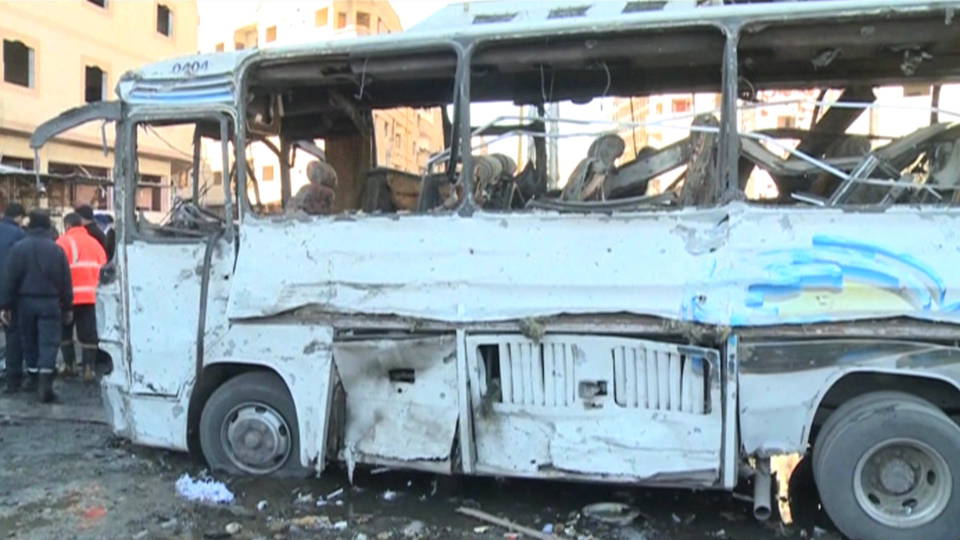
In Syria, at least 70 people have been killed in an attack by the self-proclaimed Islamic State near the revered Sayyida Zeinab Mosque south of Damascus. The Sayyida Zeinab Mosque is one of the most important Shia holy sites in the world. Sunday’s attack came as the United Nations attempts to mediate peace talks between Syrian President Bashar al-Assad’s regime and various opposition groups.
Nigeria: More Than 80 Killed in Boko Haram Attack in Borno State
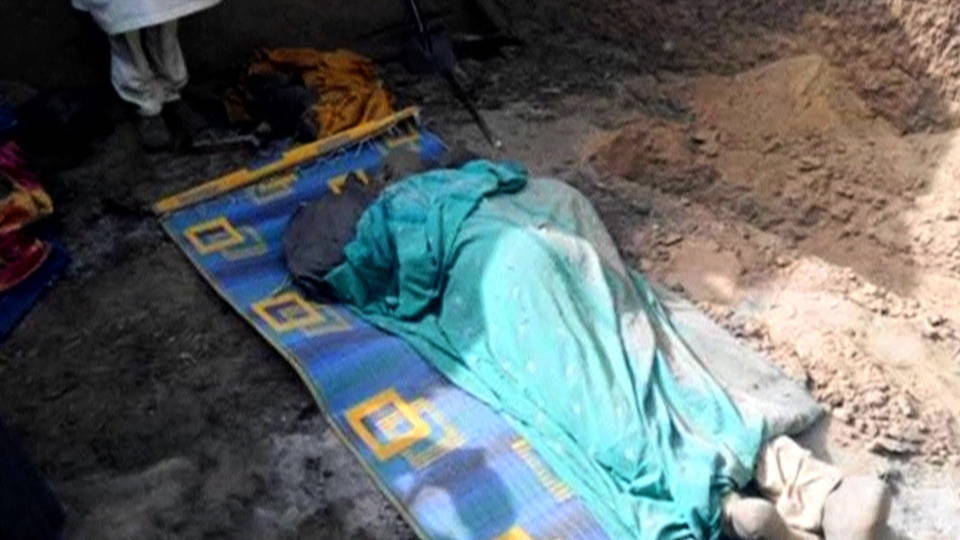
In Nigeria, as many as 86 people have been killed after Boko Haram militants attacked a village in the northeast Borno state. Witnesses say the attack included three female suicide bombers, as well as men firing on residents and lighting fire to their homes. The attack comes about a month after Nigerian President Muhammadu Buhari said Nigeria has "technically won the war" against Boko Haram.
U.S. Stepping Up Airstrikes and House Raids in Afghanistan
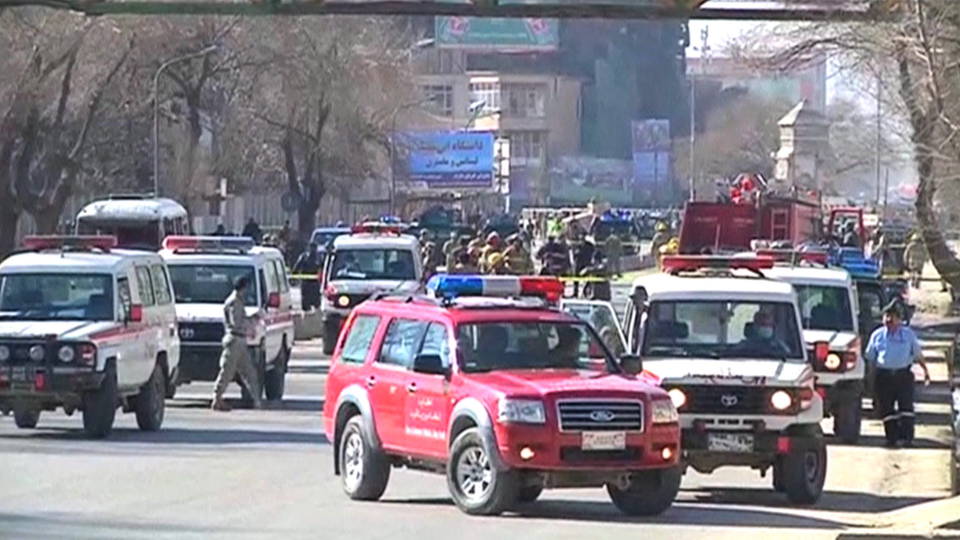
In news from Afghanistan, Pentagon officials report carrying out at least a dozen airstrikes and house raids against militants with the self-proclaimed Islamic State over the last few weeks. This comes after the White House broadened the scope of U.S. military actions against ISIL last month. President Obama officially declared an end to the U.S. combat mission in Afghanistan in 2014. Yet there are currently nearly 10,000 U.S. troops serving in Afghanistan. Pentagon officials told The New York Times they estimate that U.S. airstrikes and home raids have killed as many as a 100ISIL militants within the last few weeks. Meanwhile, in Kabul, at least 10 people have died in a suicide bomb attack near the Afghan Parliament this morning.
Ban Ki-moon: "History Proves People Will Always Resist Occupation"

U.N. Secretary-General Ban Ki-moon has written a strongly worded New York Times op-ed criticizing Israel’s continued occupation of the West Bank and Gaza. This comes amid an increasing public dispute between Ban Ki-moon and Israeli Prime Minister Benjamin Netanyahu. Last week, Ban called Israeli settlements "an affront to the Palestinian people and to the international community." In response, Israeli Prime Minister Benjamin Netanyahu said Ban Ki-moon’s criticism gives "a tailwind to terrorism" and that the "U.N. lost its neutrality and moral force a long time ago." In Ban’s editorial, entitled "Don’t Shoot the Messenger," he accused Netanyahu of twisting his words and wrote: "History proves that people will always resist occupation."
Ethiopia: Climate-Fueled Drought Causing Critical Food Shortages
Meanwhile, Ban Ki-moon visited Ethiopia over the weekend amid the country’s worst drought in decades. The drought has caused critical food shortages for more than 10 million people. A local resident spoke out.
Ezkeil Gebremedhin: "It is really going to be life-threatening if this continues as it is now, because we have nothing to eat. We are in the hands of the government now."
New research shows climate change is accelerating drought conditions in the Horn of Africa.
African Union Not to Send Peacekeeping Forces to Burundi
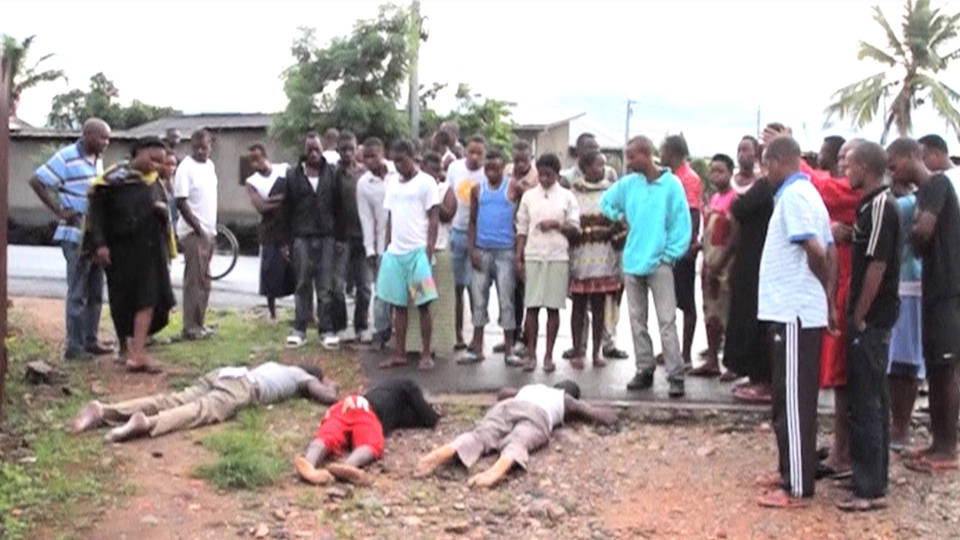
The African Union has abandoned its plans to send peacekeeping forces to Burundi amid ongoing violence sparked by Burundi President Pierre Nkurunziza’s decision last year to seek a third term. More than 400 people have been killed and nearly a quarter of a million have fled abroad since April. The violence is the worst Burundi has seen since the end of its 12-year civil war, which ended in 2005.
Europol: Thousands of Refugee Children Missing in Europe
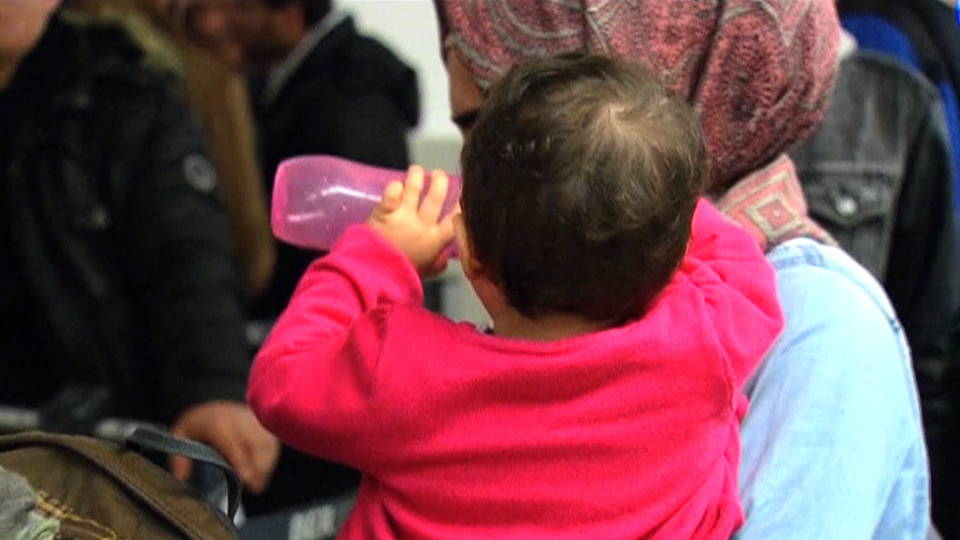
In news from Europe, Europol says at least 10,000 child refugees have disappeared after arriving on European soil, sparking concern that many have fallen victim to human and sex trafficking. Europol says thousands of children have registered with European authorities yet are now are unaccounted for. The agency estimates some may be with family members but that others have fallen into hands of a pan-European "criminal infrastructure."
Sweden: Police Arrest Suspects in Attempted Attack on Refugees
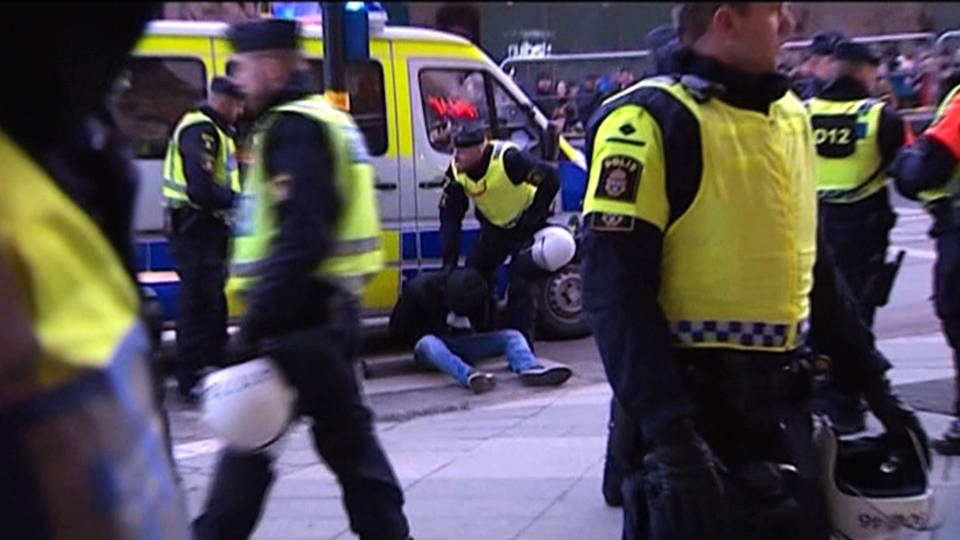
Meanwhile, in Sweden, a group of suspects have been arrested after more than 100 men, some wearing masks and carrying wooden sticks, descended on central Stockholm Friday night with the intention of beating up refugee children. A flier distributed before the planned attack threatened to give refugee children the "punishment they deserve." Police say they arrested some of the men before the attack could occur. It appears the planned attack may have been in reaction to the recent death of Swedish asylum worker Alexandra Mezher, who was killed last week at a center for unaccompanied minors.
Texas: Transgender Woman Monica Loera Murdered
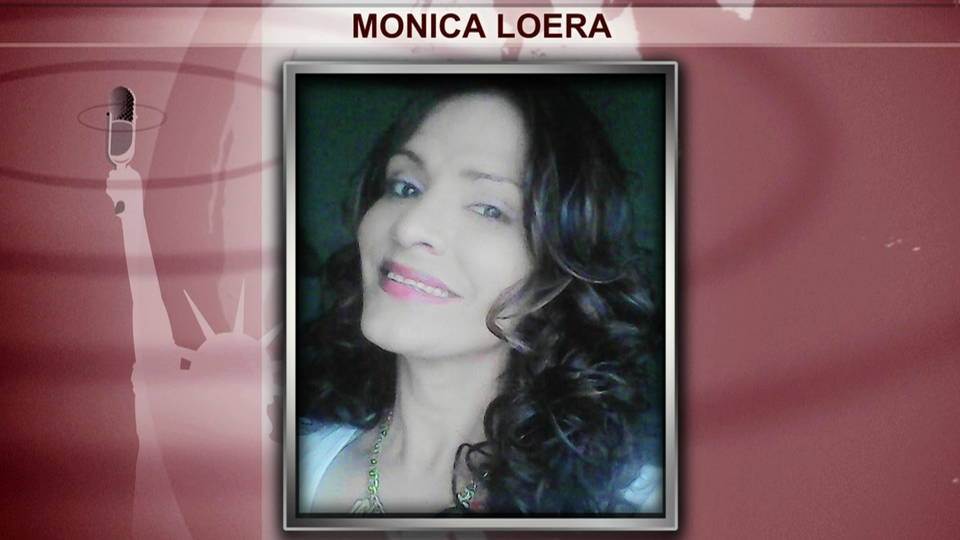
In Austin, Texas, transgender woman Monica Loera has been murdered. Police say a man arrived at Loera’s house on Friday night saying he’d forgotten his jacket. He pounded on the door until Loera opened it, at which point the man shot her. Police have arrested the man in connection with the shooting. But the police reports and the subsequent local media reports misgendered Loera for days, referring to her as male and calling her by her previous name, David. Last year, more than 20 transgender women were murdered in the U.S., more than any other year on record.
Michigan State Board Rejects Petition to Recall Gov. Snyder
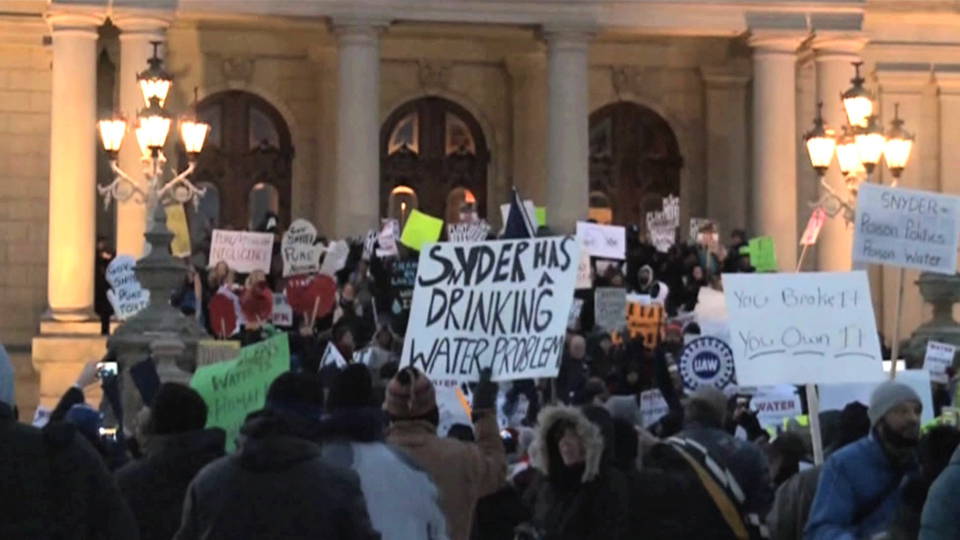
In news from Michigan, the Board of State Canvassers has rejected a petition to recall Michigan Governor Rick Snyder over his handling of Flint’s lead-poisoned water. The crisis began after a Snyder-appointed, unelected emergency manager switched the source of Flint’s drinking water to the corrosive Flint River. Flint resident Quincy Murphy had filed the petition to begin a recall effort against Snyder for "failing to protect the health and safety" of Flint residents. Flint residents have been calling for Snyder’s resignation and arrest over the ongoing water contamination crisis.
New York City: B&H Store Workers Join Unionization Campaign
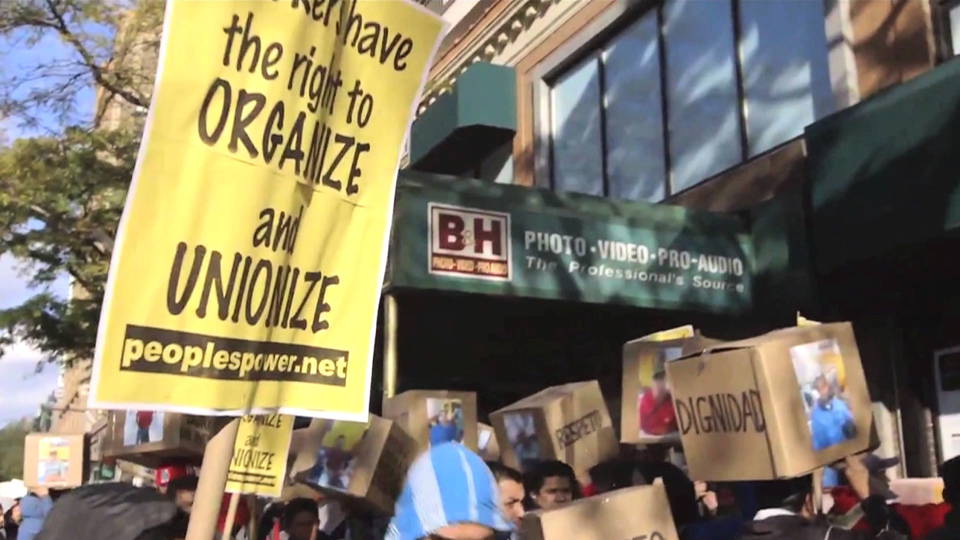
In New York City, dozens of store workers from the flagship B&H Photo Video store in Manhattan held a protest and a rally Sunday to demand better working conditions and the right to unionize. This comes after more than 200 B&H warehouse workers launched a public unionization campaign last year, with leadership training from the Laundry Workers Center. The warehouse workers successfully voted to unionize with the United Steelworkers last fall and are about to begin contract negotiations.
"Birth of a Nation" Wins Top Prizes at 2016 Sundance Film Festival
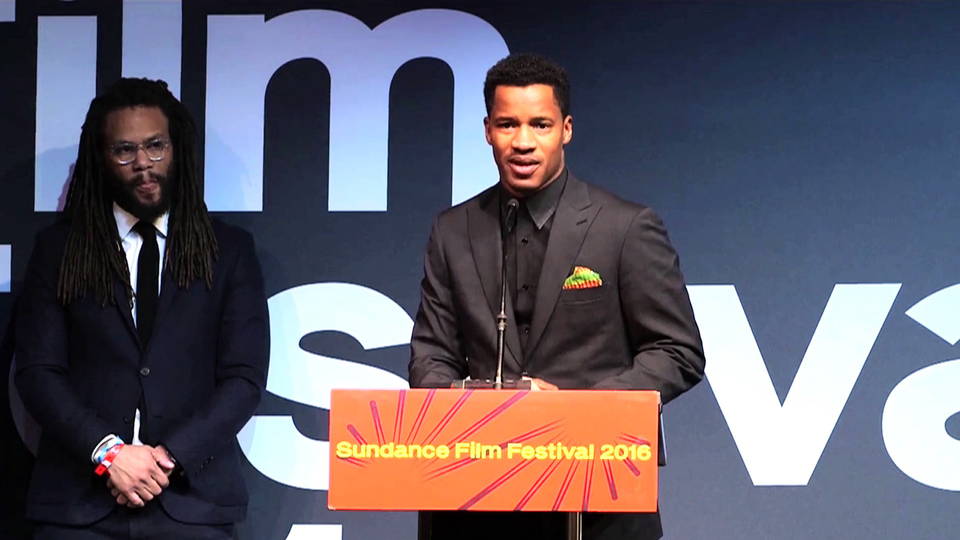
And in news from Park City, Utah, Nate Parker’s "The Birth of a Nation" won top prizes at the 2016 Sundance Film Festival. Parker produced, directed and starred in the feature film about the 1831 slave rebellion in Southampton County, Virginia, organized by enslaved man and preacher Nat Turner. On Saturday night, Parker accepted both the grand jury prize for a narrative film and the audience award for drama.
Nate Parker: "This means so much to me, because a film like this, being a film that some would call an issue film, it succeeds when it touches people, when it affects people. And I’ve seen firsthand that people are open to the idea of change, and the fact that it’s happening through this film means everything to me. So I just want to thank you all so much. Thank you, Sundance, for creating a platform for us to grow, in spite of what the rest of Hollywood is doing sometimes. So thank you for being the leader in what you do."
In the documentary category, Roger Ross Williams won best director for "Life, Animated," the story of autistic man Owen Suskind. Williams, who is also the first African-American director to win an Academy Award, spoke out about the #OscarsSoWhite controversy in his acceptance speech.
Roger Ross Williams: "In the age of #OscarsSoWhite and a lack of diversity in Hollywood, I want to thank the Institute for supporting artists like me, who never get—who never have a voice. Owen Suskind is an amazing, an amazing individual, because what he taught me is that people living with autism have so much to offer the world, and if we leave them behind, we’re losing out as a society. And I really wanted to tell this story from his point of view. So thank you so much."
And the documentary "Trapped" won the Special Jury Award for Social Impact Filmmaking. The film addresses so-called TRAP laws, which stands for Targeted Regulation of Abortion Providers, and their impact on abortion providers in the South. During her acceptance speech, director Dawn Porter spoke about the challenges abortion providers face.
Dawn Porter: "This film is really for all the people who are risking their lives and their health and safety and keeping clinics open, and all the abortion providers and people. We see you. We hear you. Your story is important. And this will go so much—so far to tell that story. So thank you so much."
To see our full interviews with directors Dawn Porter and Roger Ross Williams during the Sundance Film Festival, go to our website democracynow.org. Another one of the films that won top prize was "Jim," about the slain journalist James Foley. To see our interview with James Foley’s family, go to our website, democracynow.org.
Donate today:
Follow:

"TRAPping Access to Safe, Legal Abortions" by Amy Goodman & Denis Moynihan
PARK CITY, Utah — This week, a Houston grand jury returned a surprise indictment. It was tasked with investigating videos that purported to expose Planned Parenthood for selling the body parts of aborted fetuses. The grand jury found no wrongdoing by Planned Parenthood, but instead charged the video producers David Daleiden and Sandra Merritt from the anti-abortion group The Center for Medical Progress, with tampering with a government record, a felony.
Meanwhile, another video was released this week, this one an accurate depiction of the threat to women’s reproductive rights around the country. “TRAPPED” is a moving documentary that premiered Sunday night at the Sundance Film Festival in Park City, Utah. It demonstrates how access to safe, legal abortions has come under assault in the U.S., as state after state passes restrictive “TRAP” laws, or “Targeted Regulation of Abortion Providers.” These laws, which have proliferated since the Tea-Party sweep of state legislatures in 2010, purport to protect the health of women, but actually result in the closure of women’s health clinics. The film is being released nationally as a woman’s right to choose faces a crucial challenge before the U.S. Supreme Court on March 2.
Dawn Porter is the award-winning filmmaker who wrote, directed and produced “TRAPPED.” While in Mississippi shooting an earlier film, she learned that the state had only one remaining clinic where abortions were available. She went there to meet Dr. Willie Parker, an obstetrician/gynecologist.
Appearing on “Democracy Now!” early in the morning after the premiere of “TRAPPED,” Dr. Parker told me: “I’ve been an OB-GYN for 21 years, a doctor for 25. And when it became clear to me ... that one in three women need abortion care in their reproductive lives and that disproportionately poor women and women of color were not having those services, it became important to me to guarantee access to these very important health services by moving back to my hometown in Birmingham and to provide services in the South.”
The film follows Dr. Parker and several other abortion providers in Alabama, where TRAP laws have been passed that mandate onerous changes to clinics where abortions are provided. Most of these laws are based on model legislation drafted by an anti-choice group called Americans United for Life. They force safe, legally functioning abortion service providers to make costly and unnecessary improvements to their facilities. In scores of cases, the clinics cannot afford to make the changes, and have to shut down.
In one scene of the film “TRAPPED,” Dr. Parker is shown with a patient. He is relaying to her information that is required by Alabama’s TRAP law:
“I’m required by law to tell you that by having an abortion, it can increase your risk for breast cancer. There is no scientific evidence to support that. Now, the state requires me to tell you that if you were having this procedure, there is the risk of complications. I think that’s a good thing to know, the risk. The state requires me to tell you that you can have heavy bleeding that can be life-threatening, and it could require you to be transferred to the hospital and need a blood transfusion. If you’re having a bleeding that can only be controlled with removing your uterus, you’d have to have a hysterectomy, and you’d lose your ability to have babies in the future. Those are all the risks associated, but guess what. Those are the exact same risks that’s associated with having a baby. It is to say that you’re not taking any extra health risk. So abortion is extremely safe.”
In Texas, the TRAP law, known as HB2, passed in 2013. Before HB2 became law, there were 40 operating abortion clinics in Texas. Only 19 remain. A San Antonio clinic filed a lawsuit opposing HB2’s restrictions. That case, Whole Woman’s Health v. Hellerstedt (formerly v. Cole), will be argued before the U.S. Supreme Court on March 2, with a decision expected by June.
The doctored videos that were created to take down Planned Parenthood failed in their goal; their creators face years in prison. While “TRAPPED” will be airing in June on the PBS documentary series “Independent Lens,” it also will be shown in movie theaters, with concurrent community screenings. Dawn Porter hopes her latest film will engage, persuade and mobilize people across the country as this critical health-care issue is decided by the Supreme Court.
WEB EXCLUSIVE

Director of Finance and Operations
Director of Development
---------------------
207 West 25th Street, 11th Floor
New York, New York 10001, United States
---------------------
Democracy Now! Daily Digest: A Daily Independent Global News Hour with Amy Goodman & Juan González for Thursday, January 28, 2016
democracynow.org
Stories:

The Settlers: New Film Reveals History & Consequences of Israeli Settlements on Palestinian Land
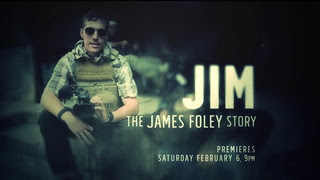
Covering War to End War: New Film Recounts Life & Legacy of James Foley, Journalist Killed by ISIS
Headlines:
First U.S. Case of Zika Reported as Virus Is "Spreading Explosively"

In Virginia, the Health Department has confirmed its first Zika virus infection in an adult, sparking concern the mosquito-borne infection could soon sweep the United States as it has dozens of other countries. The Zika virus itself is usually not life-threatening, but it appears to be linked to a condition called microcephaly, a rare and dangerous birth defect that causes babies to be born with abnormally small heads. The Centers for Disease Control and Prevention says microcephaly also causes a host of other health problems, including seizures, developmental delays, hearing loss and vision problems. A recent study estimates the Zika virus could reach regions where 60 percent of the U.S. population lives. At least 22 countries and territories in the Americas have recorded confirmed cases of the Zika virus. World Health Organization Director-General Margaret Chan says the virus is "spreading explosively." One of the hardest-hit countries is Brazil, where more than 4,000 babies have been born with microcephaly since October. Brazil has mobilized the military and health workers to combat the virus. Another hard-hit country, El Salvador, has taken the extreme step of recommending women not get pregnant before 2018. Scientists have linked rising temperatures from global warming to the increased incidence of mosquito-borne infections such as Zika. Australia’s Climate and Health Alliance executive director Fiona Armstrong said, "Zika is the latest example of the many mosquito-borne viruses which pose an increasing threat to humans due to warmer and wetter conditions associated with climate change."
Oregon: Ammon Bundy Calls for Final Militia Members to End Occupation
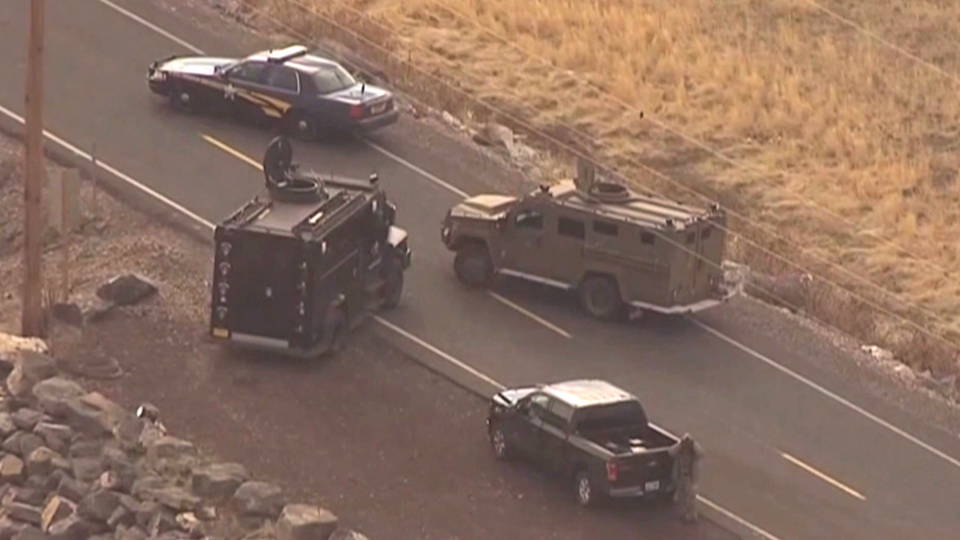
In Oregon, Ammon Bundy has called for the remaining armed militia members occupying a federal wildlife reserve to "please go home." Ammon and his brother Ryan Bundy were arrested following a traffic stop Tuesday afternoon that left militia spokesperson Robert "LaVoy" Finicum dead. In federal court Wednesday, Ammon Bundy’s lawyer read Bundy’s statement urging the protesters to end the armed occupation. This comes as law enforcement officers set up checkpoints in and out of the wildlife refuge. Officers arrested three more militia members at one of the checkpoints. In total, 11 militia members have been arrested, including the Bundy brothers. They all face federal felony charges of conspiracy to impede officers of the United States from discharging their duties through the use of force, intimidation or threats.
Sweden to Expel Up to 80,000 Refugees in Coming Years
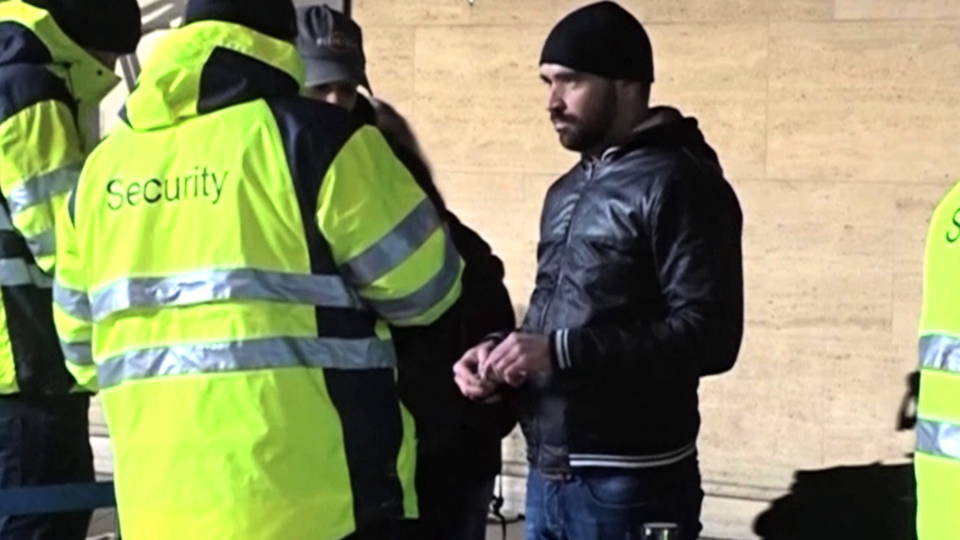
In news from Europe, the Swedish interior minister says Sweden plans to expel up to 80,000 refugees who arrived in 2015 seeking asylum. The minister said the expulsions would require specially chartered aircrafts and could take several years.
Denmark: Refugees Protest New Laws Permitting Confiscation of Their Valuables
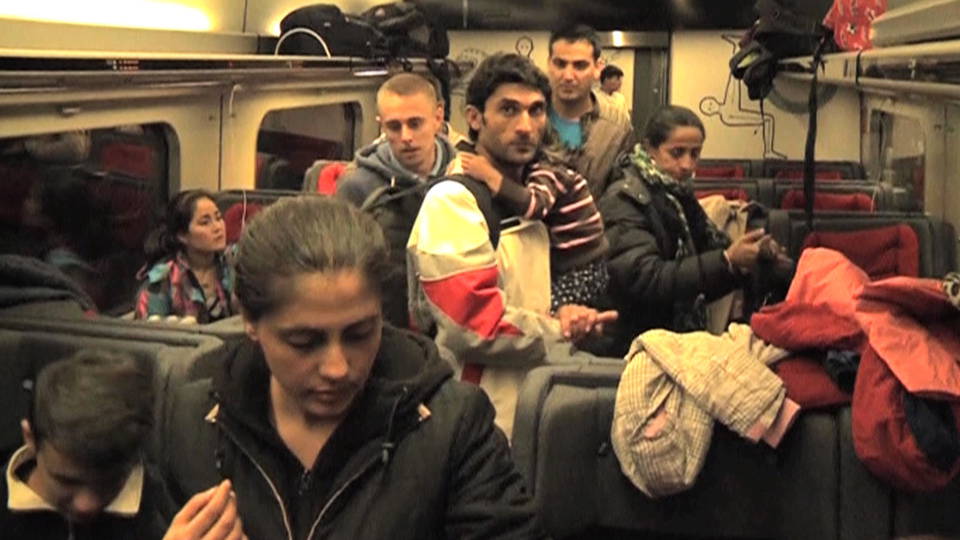
This comes as refugees in Copenhagen are protesting newly passed Danish laws that permit Denmark to confiscate refugees’ money and valuables to pay for their stay in asylum centers. Many have compared the so-called "jewelry bill" to the confiscation of property from Jews during the Holocaust. The new laws also delay family reunification for one to three years. An Iraqi refugee named Hiwa spoke out during a protest in Copenhagen Tuesday.
Hiwa: "I think it’s a wrong law, and we don’t accept this. We condemn it, and we protested today, and we are going to keep going protest against this new law, because this doesn’t work. And we want the Danish Parliament to think again about this new law, because this is dehumanizing us."
South Carolina: Proposed Bill Would Require Police to Track Refugees
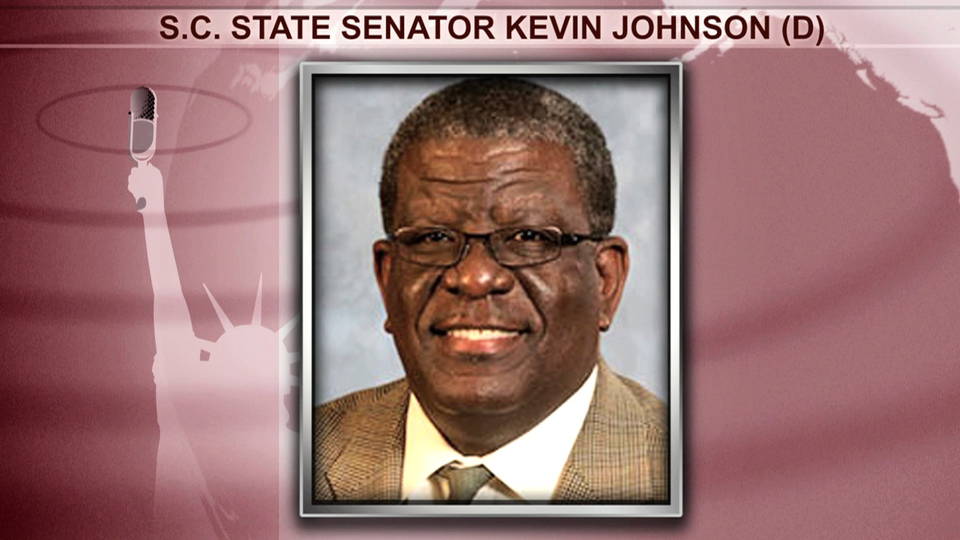
Meanwhile, in South Carolina, a new bill that would require state police to track refugees is headed to the Senate floor, after a Senate committee approved the measure Wednesday. If passed, the bill could mean refugees’ home addresses would be placed on an Internet registry, similar to the ones used for registered sex offenders. Democratic state Senator Kevin Johnson, who is African-American, compared the bill to the treatment his ancestors received under Jim Crow, saying, "They were told the same thing: 'We don't want you in our state. We don’t want you in our neighborhood. We don’t want you in our schools.’"
Afghanistan: 3 Former Bagram Prisoners Hunger-Strike over Continued Imprisonment
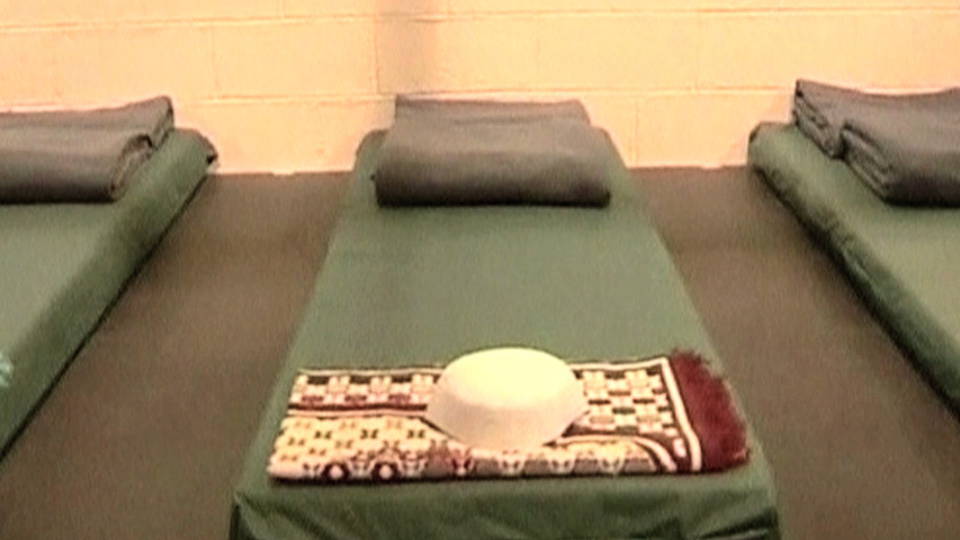
In Afghanistan, three prisoners who were formerly held at the secretive U.S. Bagram military prison and are now being held in Afghan custody have launched a hunger strike to protest their continued imprisonment. Two of the three prisoners, brothers Sa’id Jamaluddin and Abdul Fatah, were captured by U.S. forces during a military raid in 2008 and were sent to the Bagram prison. In 2010, the U.S. military found the brothers posed no risk to the U.S. The brothers were transferred to Afghan custody in December 2014, as the U.S. moved to close its military prisons in Afghanistan. Two months later, an Afghan court ruled that they were entitled to release, but they remain in custody to this day. An Afghan court has also ruled that the third hunger-striking prisoner, Musa Akhmadjanov, is not guilty of any crime under Afghan law and is also entitled to release, yet he too remains imprisoned.
Trump and Cruz Feud as Trump Plans to Skip Tonight's GOP Debate
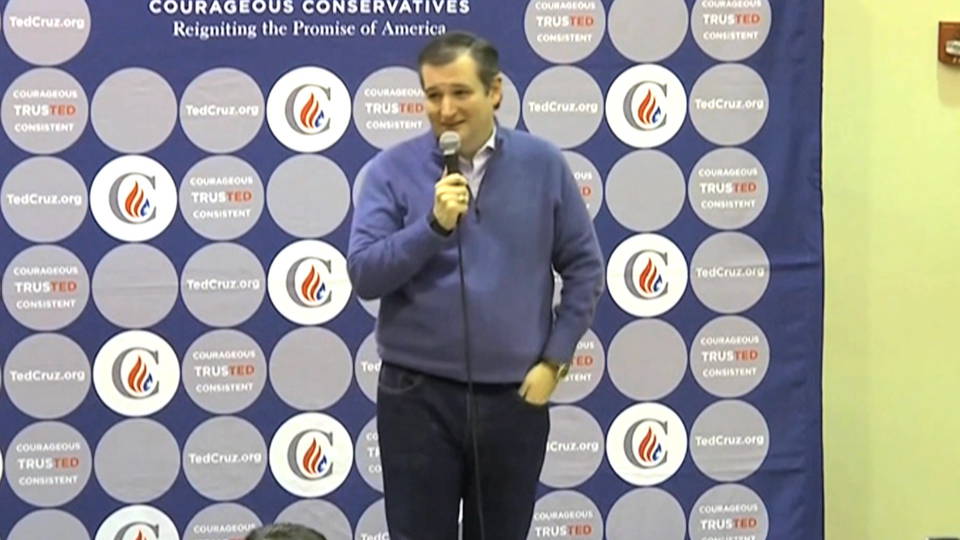
In news from the campaign trail, Republican presidential candidate Donald Trump has announced he will be holding a separate event at Drake University in Iowa tonight at the same time as the Fox News-hosted GOP debate. This comes after Trump said he wouldn’t participate in the debate after Fox refused to remove anchor Megyn Kelly as one of the debate’s moderators. In August, during the first GOP debate, Kelly asked Trump about his history of calling women "fat pigs, dogs, slobs and disgusting animals." After that debate, Trump criticized Kelly, saying, "She starts asking me all sorts of ridiculous questions. And, you know, you could see there was blood coming out of her eyes, blood coming out of her, wherever." Instead of participating in tonight’s debate, Trump says he’s holding a special event to benefit veteran organizations, although it’s unclear how the scheduled free event will in fact raise money for these groups. Ted Cruz, meanwhile, has booked another venue in Sioux City, Iowa, for his proposed "mano a mano" debate between him and Trump on Saturday. Trump has dismissed Cruz’s calls for the one-on-one debate, derisively suggesting it be held in Canada, a reference to Cruz’s birthplace. Cruz’s campaign website has also begun selling a version of Trump’s "Make America Great Again" baseball cap—except this version of the hat reads "Make Trump Debate Again." Nate Silver’s FiveThirtyEight blog predicts Cruz and Trump are currently neck and neck in Iowa.
Sanders Campaign Calls for 3 More DNC-Sanctioned Debates
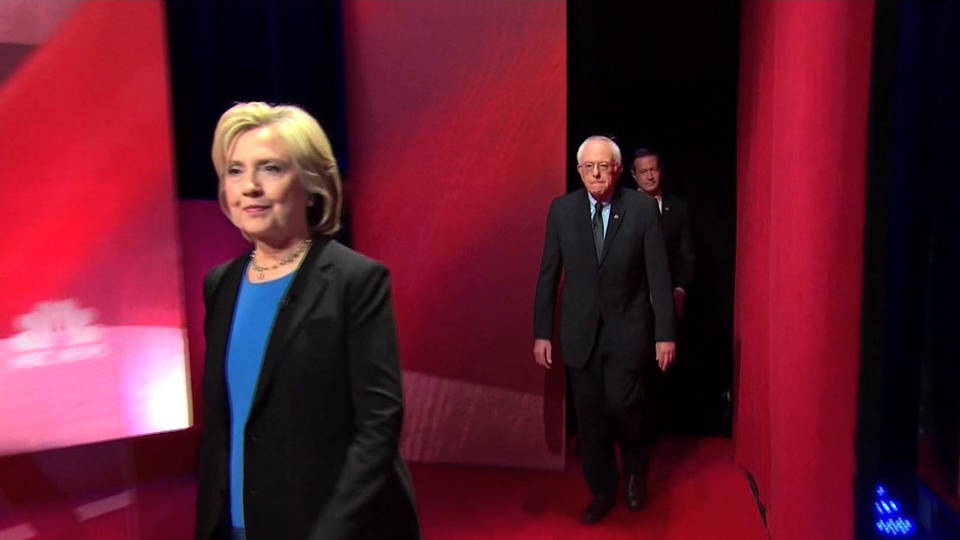
Meanwhile, Democratic presidential candidate Bernie Sanders’ campaign has called for three more official debates sanctioned by the Democratic National Committee. This comes as his rival, former Secretary of State Hillary Clinton, is calling on Sanders to join her proposed debate in New Hampshire next week, which has not been sanctioned by the DNC. Sanders has said he doesn’t want to participate in Clinton’s debate for fear of being barred from future official DNC events. On Wednesday, Sanders’ campaign manager Jeff Weaver said in a statement, "From the beginning of this campaign Sen. Sanders has called for more debates. Secretary Clinton has not. Now she is asking to change the rules to schedule a debate next week that is not sanctioned by the DNC. Why is that? The answer is obvious. The dynamics of the race have changed and Senator Sanders has significant momentum."
Flint: Rachel Maddow Hosts Live Town Hall on Poisoned Water
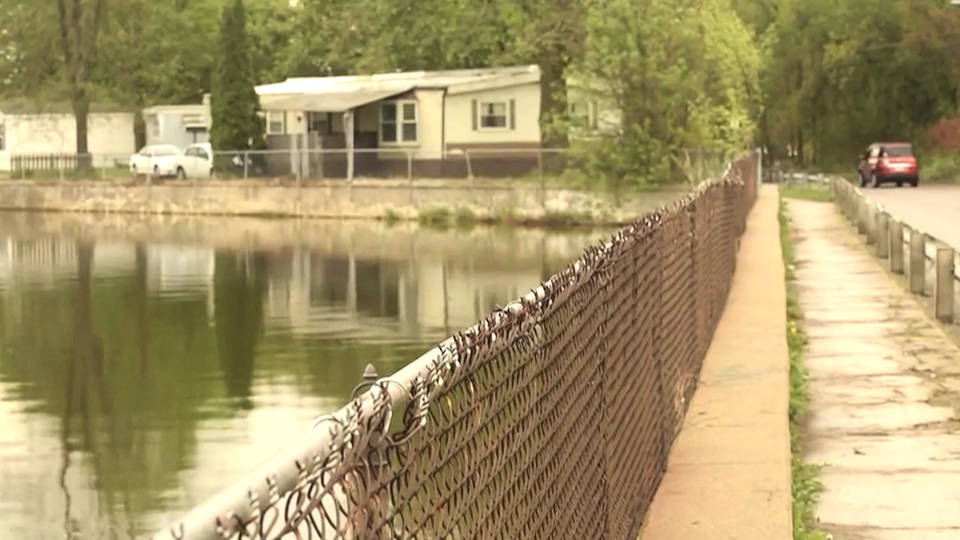
MSNBC anchor Rachel Maddow hosted a live town hall in Flint, Michigan, Wednesday to examine the ongoing crisis over lead poisoning in the drinking water. The contamination crisis began after Flint’s unelected emergency manager appointed by Michigan Governor Rick Snyder switched the source of the city’s drinking water to the corrosive Flint River in a bid to save money. At the town hall, Reverend Charles Williams, the president of National Action Network’s Michigan chapter, spoke out against the state’s emergency management laws and called attention to the fact that Governor Snyder has used state-imposed emergency management almost exclusively against majority black cities.
Rev. Charles Williams: "Took over every black city in Michigan. Took over every black city in Michigan—Flint, Detroit, Ecorse, Detroit Public Schools, Benton Harbor—and has failed at every city he has taken over. ’I’m putting in emergency management to keep Detroit from going bankrupt.’ What happened? Detroit goes bankrupt. I mean, it’s ludicrous, and anybody who fails at the rate that Governor Snyder has failed, I would have been fired a long time ago. All I got to say is Governor Snyder’s got to go."
Civil Rights Lawyer Michael John Kennedy Dies at 78
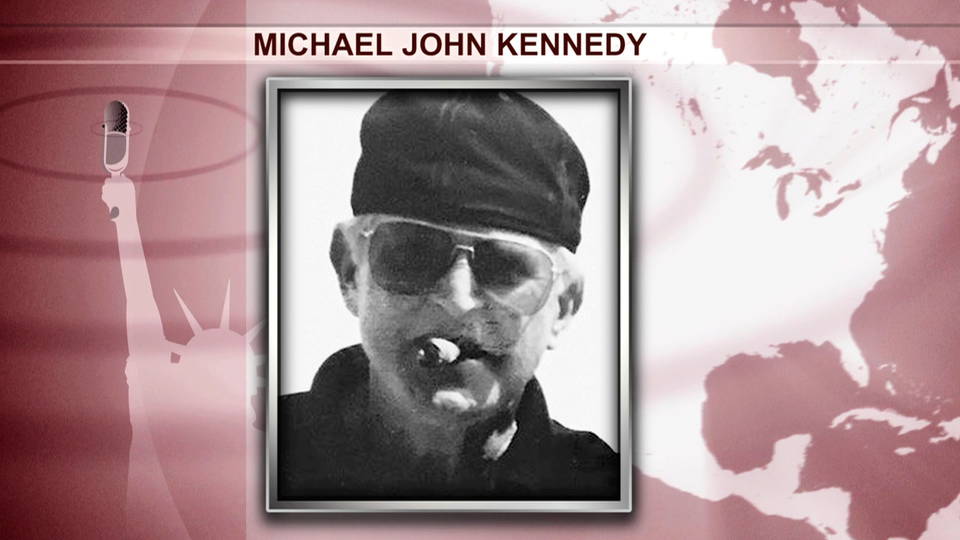
And civil rights lawyer Michael John Kennedy has died. Throughout his career, Kennedy represented a number of activists from some of the United States’ most significant radical movements, including the Black Panther Party, the American Indian Movement and the Weather Underground. Kennedy successfully defended Black Panther Party co-founder Huey Newton. He also won acquittals for six Americans charged with raising money to fund the Irish Republican Army, known as the IRA. He was arrested and jailed briefly after staging a silent protest during a House Un-American Activities Committee investigation, and he served as a legal aid to the Sandinista movement in Nicaragua. In his one and only divorce case, Kennedy also represented Ivana Trump in her divorce from Donald Trump. Kennedy was the general counsel for High Times magazine for 42 years, during which he provided a legal shield for the magazine’s effort to expose the U.S. government’s war on drugs. He died on Monday at the age of 78 after a battle with cancer.
Donate today →
Follow:
---------------------
Democracy Now! Daily Digest: A Daily Independent Global News Hour with Amy Goodman & Juan González for Thursday, January 28, 2016
democracynow.org
Stories:

The Settlers: New Film Reveals History & Consequences of Israeli Settlements on Palestinian Land
As Israel faces international condemnation over its plan to build 153 new settlement homes in the Israeli-occupied West Bank, the watchdog group Peace Now reports Israel’s defense minister has approved the construction of the new Jewish-only homes last week. The plan sparked swift criticism from U.N. Secretary-General Ban Ki-moon, who called the settlements "an affront to the Palestinian people and to the international community." In response, Israeli Prime Minister Benjamin Netanyahu said Ban Ki-moon’s criticism gives "a tailwind to terrorism" and that the "U.N. lost its neutrality and moral force a long time ago." This comes as President Barack Obama spoke at the Israeli Embassy to mark Holocaust Remembrance Day, saying, "We are all indeed Jews." We examine the history and consequences of decades of Israeli settlement construction on Palestinian lands in an interview with Shimon Dotan, the director of an extraordinary new film, "The Settlers," which just had its world premiere at the Sundance Film Festival. "It is such a heated and often discussed topic, but I find that so little is known about it, and often the discussion is misinformed," Dotan says.
TRANSCRIPT
This is a rush transcript. Copy may not be in its final form.
AMY GOODMAN: We’re broadcasting from the Sundance Film Festival here in Park City, Utah. Israel is facing international condemnation over its plan to build 153 new settlement homes in the Israeli-occupied West Bank. The watchdog group Peace Now reports Israel’s defense minister approved the construction of the new Jewish-only homes last week. The plan sparked swift criticism from U.N. Secretary-General Ban Ki-moon, who called the settlements, quote, "an affront to the Palestinian people and to the international community."
SECRETARY-GENERAL BAN KI-MOON: Continued settlement activities are an affront to the Palestinian people and to the international community. They rightly raise fundamental questions about Israel’s commitment to a two-state solution.
AMY GOODMAN: In response, Israeli Prime Minister Benjamin Netanyahu said Ban Ki-moon’s criticism gives, quote, "a tailwind to terrorism," and that, quote, "The U.N. lost its neutrality and moral force a long time ago," end-quote.
PRIME MINISTER BENJAMIN NETANYAHU: [translated] The words of the secretary-general only bolster terrorism. There is no justification for terrorism, period. The Palestinian murderers do not want to build a state. They want to destroy a state. And they declare it publicly.
AMY GOODMAN: This comes as President Barack Obama spoke at the Israeli Embassy to mark Holocaust Remembrance Day, saying, quote, "We are all indeed Jews."
Well, we now turn to an extraordinary new film called The Settlers, which just had its world premiere here at the Sundance Film Festival. The documentary examines the history and consequences of decades of Israeli settlement construction on Palestinian lands. We’ll be joined by the film’s director in a minute, but first I want to play a clip from the film. Talia Sasson, the former head of the Israeli State Prosecution Criminal Department, explains the findings of an official Israeli government report on the settlements.
TALIA SASSON: [translated] I listed 105 outposts built between 1995 and March 2005. The findings of my report were that the entity behind the establishment of the outposts was the state of Israel, acting behind the government’s back, illegally, but with the involvement of various government ministries, settlers, local councils in the territories. They are the ones that used state funds to build those outposts, and all of this was done illegally. The illegality was institutionalized. The government couldn’t decide on the establishment of new settlements, because the Americans were given verbal commitments, and the prime minister didn’t want to violate them. But there was still the desire to build new settlements, so they found a system whereby the government is "unaware" that settlements are being built with government funds.
AMY GOODMAN: That was a clip from the just-released documentary film, The Settlers. For more, we’re joined by the film’s director, Shimon Dotan, an award-winning filmmaker. He teaches political cinema at NYU Graduate School of Journalism and film directing at New School University.
Welcome to Democracy Now! It’s great to have you with us.
SHIMON DOTAN: Thank you.
AMY GOODMAN: So, talk about the history of the settlements. While we hear a lot about what’s happening every day, how 400,000 Jews came to settle in these Jewish-only communities in the occupied West Bank is critical to understand today.
SHIMON DOTAN: One of the reasons that I’ve made The Settlers is because it’s such a heated and often discussed topic, but I find that so little is known about it. And often the discussion about it is misinformed. I started the film as an attempt to explore the present reality in the West Bank, but soon I understood that it’s very important to go back to the roots, to the very beginning of the settlements.
What I found out, which is not a secret, but it’s—I think it’s relevant to put it up front, is that at no point in time any Israel government decided that it’s in the best interests of the state of Israel to keep settlements in the West Bank. It all happened in a sort of dragged way, in—as Talia Sasson explained in the clip that we’ve just seen. There was initiative from the settlers that was driven—that were driven often by religious, ideological or political reasons. And we are facing today a reality which is, in my view, the most critical to the state of Israel, to the region at large, that took us there without a calculated and educated decision from the government of Israel.
AMY GOODMAN: So, talk about the first Jewish settlers, how they ended up there. Talk about the numbers of people right now that are settlers in the West Bank.
SHIMON DOTAN: After the—well, maybe I’ll take one step back. In May 1967, there was a celebration of the Israel Independence Day at a yeshiva called Mercaz Harav Yeshiva, where a charismatic rabbi named Tzvi Yehuda Kook started an outcry longing for the lost biblical sites of Israel: "Where is our Hebron? Where is our Nablus? Where is our Jericho?" Three weeks later, Israel took possession of Jericho, Nablus and Hebron. The students, his disciples that were there at this particular moment, became the leader of the settlement movement, where its primary ideology is that Israel and the people of Israel will get redemption by populating the land of the West Bank. So, very early on, it was almost a whimsical attempt from individuals to go back to sites that have biblical or recent memory presence among those Israelis.
At the same time, it was a clear intention of the government of Israel to engage in a land-for-peace negotiation with the neighboring [Arab] states. The government, Levi Eshkol, Israel’s prime minister at the time, allowed these one or two settlements to take hold. And later on, it had become—you know, it mushroomed in a way that’s hard to fathom. We have today about 400,000 settlers in the West Bank. I would say about 80,000 of them are ideologically or politically driven, religiously driven. And the vast majority is there for, let’s call it, quality-of-life reasons—cheaper housing, etc.
AMY GOODMAN: The assassination of Yitzhak Rabin by an extremist Israeli Jew, talk about the significance of this.
SHIMON DOTAN: Well, that’s a watershed. Everything changed after the assassination. And I think one of the reasons that many in Israel do oppose the settlement enterprise and whatever it implies is that there is an inevitable process, inevitable evolution: When you create a reality of settlements under occupation of the population within that territory, extremists tend to flourish, and you put the people in this region in an eternal conflict with their immediate neighbors. Now, before Rabin was assassinated, 20 year earlier—20 years earlier, he was a very strong opponent of the settlement enterprise. He called clearly in 1974 the Gush Emunim, which was the driving force behind the early settlers—he called it a cancer in the democratic fabric of the state of Israel. It didn’t take long: 20 years later, he was murdered.
AMY GOODMAN: And talk about the man who murdered him.
SHIMON DOTAN: Well, I have—his name is Yigal Amir. He’s an extremist Jew that believed that he has to take an action in order to save the settlements, so to speak, to prevent the Oslo process, which was a peace—an attempt to a peace agreement between Israel and the Palestinians, to take hold. And tragically, he—it was an extremely successful political assassination. After Rabin’s death, Oslo fell apart, and Israel, since then, more or less, was governed by right-wing governments.
AMY GOODMAN: You have extremely powerful moments, poignant moments—a Palestinian woman saying, "Get off my land," to Israeli settlers who have come onto the land. "These are my olive trees. This is my land."
SHIMON DOTAN: Right.
AMY GOODMAN: Talk about that, and also your interview with the head of Al-Haq, the human rights organization in Ramallah.
SHIMON DOTAN: Well, at first, I thought I’m going to interview and talk about and present only settlers. But it was clear that I cannot just stay away from those who are terribly affected by this presence. And so, we have this woman that actually she has just a few olive trees, and she has a stick in her hand, and she comes to some of the settlers that took a hold of her olive trees, and she threatened them with this stick, says, "Don’t dare touch my olive trees!" Well, you know, it’s an iconic moment, and it does represent a reality that became now the day-to-day life of the people there.
Raja Shehadeh is a human rights activist in the West Bank. He’s based in Ramallah. And he presents, in a very eloquent way, the experience of Palestinians after the settlements actually infiltrated throughout every possible corner of the West Bank.
But I must say—if we have time, I don’t know—I think it’s extremely important to understand what drove the settlers. And it’s not something that will go away. And one of the purposes that I had in making this film is to really inform and have a better understanding that will take us away from the black-and-white depiction of the reality. And I hope that the movie does that.
AMY GOODMAN: We’re talking to Shimon Dotan, who’s an award-winning filmmaker. His latest film premiered here at the Sundance Film Festival. It’s called The Settlers. The youth group—talk about Gush Emunim, the significance of this, and the violence the settlers engage in.
SHIMON DOTAN: Well, the pattern that was established by the early Gush Emunim members—it started with Moshe Levinger; at first, he established the Jewish settlement inside Hebron—became a pattern that has been used throughout the years. Tragically, today, almost 50 years after Israel took possession of the land of the West Bank, a new group of young settlers—they call them the hilltop youth—are engaging in similar tactics. The main difference may be that they are probably less educated, they are more extreme, and they stop at nothing. But the pattern that was established 50 years ago seems to relive itself once again. And I find it terribly concerning. They may not have the power, the political power, to drive the dialogue, but they most definitely have the ability to prevent or to stop, by action of violence against the other side, any attempt at moving forward in any process or agreement with the Palestinians.
AMY GOODMAN: The significance of what Ban Ki-moon said, the—once again condemning the expanded settlements in the West Bank?
SHIMON DOTAN: I find it almost irrelevant, if I may say so. The settlements in the West Bank are a massive presence, and 135 new houses are meaningless. At every point in time, there is ongoing construction in the West Bank. The settlements are expanding, are flourishing. More and more people are moving into the West Bank. And if I think of—that, you know, it’s a country that was established on ideals of secular liberalism, on equality. And the push to the settlement enterprise, it forces the state of Israel to hold a strong grip with the occupation of the West Bank. That’s what really is relevant. This small hundred houses or less, that’s—it seems to me, that’s not the issue. We have to have a more far-reaching goal and more—
AMY GOODMAN: What do you see will end the occupation?
SHIMON DOTAN: Well, I wouldn’t even try to propose a solution. What I do know, that if the prime minister of Israel does not wake up every single morning and put a mantra in front of his eyes—"What can I do today to bring peace to the region?"—he’s not doing his job.
AMY GOODMAN: I mean, it doesn’t matter if it was Likud or Labor.
SHIMON DOTAN: Oh, absolutely.
AMY GOODMAN: The settlements flourish.
SHIMON DOTAN: Yes.
AMY GOODMAN: And the insult, not to mention the actual killings of Palestinians in the West Bank, what it means to them every day, they and their ancestral homes being pushed out by many Jews who don’t even come from the area. How many of them, for example, come from New York, come from Brooklyn?
SHIMON DOTAN: Yeah, I don’t have the numbers. But the point is that Jews that are coming through the Law of Return in Israel are allowed to gain citizenship, are offered citizenship as soon as they come to the state of Israel. However, those who come directly to the West Bank enjoy the same benefits. But you mentioned the violence—
AMY GOODMAN: And Palestinians, on the issue of the right of return?
SHIMON DOTAN: No, there is no status for Palestinians to gain the right of return. This is a non-existing element. But you mentioned the violence before that is practiced against Palestinians, which is true, but I must say that the violence against Israelis, against settlers, is quite wider, very present. And we can say that that—what I mentioned before—that we are facing an inevitable evolution. This violence is there to stay. And if they may be, you know, idle for a day or for a week or for a month, it surely will come back. And every time it comes back, it comes back in a stronger and more vicious form.
AMY GOODMAN: I want to thank you very much for being with us. Shimon Dotan is the award-winning filmmaker. His latest film, The Settlers, premiered here at the Sundance Film Festival. He teaches political cinema at NYU Graduate School of Journalism and film directing at New School University in New York.
This is Democracy Now! When we come back, the story of Jim—that’s James Foley—the first American to be killed by ISIS. Stay with us.
... Read More →
Covering War to End War: New Film Recounts Life & Legacy of James Foley, Journalist Killed by ISIS
As we broadcast from the Sundance Film Festival, we feature a new film about James Foley, the American journalist beheaded by the Islamic State in August of 2014. Foley was a freelance journalist who covered Iraq, Afghanistan, Libya and Syria. In 2011, he was kidnapped and held for 44 days in Libya. A year after his release, he was kidnapped again—this time in Syria. He wasn’t seen again until images of his beheading were broadcast around the world. Discussing his work, Foley said, "I believe frontline journalism is important. Without these photos and videos and firsthand experience, you can’t really tell the world how bad it might be." Since his death, his mother Diane Foley has become a leading critic of a U.S. policy to refuse to negotiate or pay ransom to captors unlike European nations. In November, she told Congress that her son would be alive today had he been French, Spanish, German, Italian or Danish. In part due to her campaigning, the Obama administration announced last year plans to change aspects of the U.S. hostage policy. We speak with James Foley’s parents, Diane and John Foley, who have started the James W. Foley Legacy Foundation, and with Brian Oakes, the director of the HBO documentary, "Jim: The James Foley Story," which will premiere on HBO on February 6. Oakes was a childhood friend of Foley.
TRANSCRIPT
This is a rush transcript. Copy may not be in its final form.
AMY GOODMAN: This is Democracy Now!, democracynow.org, The War and Peace Report. I’m Amy Goodman. We’re broadcasting from the Sundance Film Festival in Park City, Utah, as we turn now to a new documentary about James Foley, the American journalist beheaded by the Islamic State in August of 2014. The film is titled Jim: The James Foley Story.
JAMES FOLEY: I believe frontline journalism is important. Without these photos and videos and firsthand experience, we can’t really tell the world how bad it might be.
CLARE GILLIS: It’s the event with the second most recognition in recent American history after 9/11. Jim would have been horrified by that.
DIANE FOLEY: I think I was in denial about how dangerous this really was.
NICOLE TUNG: These four guys with guns, they stopped the taxi, and they put Jim into the back of their van. I didn’t know if I was going to see him again.
DIANE FOLEY: We didn’t know who was holding him. I was frantic.
UNIDENTIFIED: ISIS was on nobody’s radar.
DIANE FOLEY: They threatened to kill Jim.
MICHAEL FOLEY: I hadn’t heard Jim’s voice in two years. I never, ever imagined that it would end in that fashion.
DANIEL RYE OTTOSEN: We lost all hope in captivity. But James didn’t. He saw the light instead of the dark.
JAMES FOLEY: There’s physical courage, but that’s nothing compared to moral courage. If I don’t have that moral courage, we don’t have journalism.
AMY GOODMAN: The HBO documentary, Jim: The James Foley Story, is currently at the Sundance Film Festival and will premiere on HBO on February 6.
James Foley was a freelance journalist who covered Iraq, Afghanistan, Libya, Syria. In 2011, he was kidnapped and held for 44 days in Libya. A year after his release, he was kidnapped again—this time in Syria. He wasn’t seen again until images of his beheading were broadcast around the world.
Since his death, James’s mother, Diane Foley, has become a leading critic of a U.S. policy to refuse to negotiate or pay ransom to captors, unlike European nations. In November, she told Congress Jim would be alive today had he been French, Spanish, German, Italian or Danish. In part due to her campaigning, the Obama administration announced last year plans to change aspects of the U.S. hostage policy.
Earlier this week, I spoke to Jim Foley’s parents, Diane and John Foley, who have started the James W. Foley Legacy Foundation. We also spoke to Brian Oakes, the director of the film Jim. He was a childhood friend of James Foley. I began by asking Diane Foley when she learned her son had been kidnapped in Syria.
DIANE FOLEY: It was Thanksgiving. It was actually the day—the morning after Thanksgiving, when we had begun to be concerned because we had not heard from Jim. And that was very unlike him, because even when he was in the field, he would always, you know, reach out at holidays, and particularly Thanksgiving. And we have not heard from him. So the next morning, we were on the couch having a cup of coffee, and the phone rang. And we heard from his colleague, Clare Gillis, and she informed us that Jim had not returned the night before and that a witness said he had been kidnapped. We were in shock that it could happen again, really, you know, within a year of his other—well, a year and a half of his other capture in Libya. So we were incredulous that it could happen again, and very much in shock.
AMY GOODMAN: Diane Foley, can you talk about your son Jim? You have—you had five children.
DIANE FOLEY: Jim was our oldest, you know, marched to his own drummer. He was his own—very much his own person. But Jim had many gifts in that he was just curious in people, wanted to get everybody’s story. And so, when he finally found journalism, or it found him, it was like a perfect match. It was like—you know, Jim was an incredible listener. And so it really—he had found something that—a way to give voice to a lot of people who had stories to tell, important stories for the world to know.
AMY GOODMAN: Let’s go to a clip of Jim: The James Foley Story.
DIANE FOLEY: Jim was the kind of guy who never needed much. Some of the lifestyle of a conflict journalist is tough. But that didn’t bother Jim.
THOMAS DURKIN: The only possessions I think Jim cared about were books and CDs—I mean, his camera, ultimately.
UNIDENTIFIED: He’d come home without a toothbrush, just use whatever toothbrush was available.
NICOLE TUNG: Jim could fall asleep anywhere. All he needed was just a little space on the floor. He was like a cat.
BRIAN OAKES: This is a good one.
MANU BRABO: Yeah, there was shelling not so far, shooting. And this guy was calm, taking things easy, sleeping.
DIANE FOLEY: Over time, you know, he slowly got rid of his apartment, sold his car. He just ended up really owning nothing. So, what he would want for Christmas, this last time, before going to Syria, he wanted a tough pair of pants. He really did have less and less, and it didn’t bother him at all.
AMY GOODMAN: And, Diane, in the film, your son John, who’s in the military, talked about his ongoing arguments and battles with his older brother about war. Can you talk about that? And is it fair to say that Jim covered war to end war?
DIANE FOLEY: I think that’s very true, Amy. He was—he wanted to understand the issues, and certainly particularly the issues of the civilians and the children. And he really felt our world, the Western world, really needed to know those stories. So he—the more suffering he saw, truly the more committed he became to all of that. He really felt he had promises to keep. He became very committed. He was very touched by the goodness of so many of the local Syrians, so therefore he became very passionate about that story.
AMY GOODMAN: Democracy Now! was in Chicago in 2012 for the major anti-NATO protests that were happening there because of the summit that was taking place. And that was the same time that the great late cinematographer, the Oscar-winning filmmaker Haskell Wexler was there making a film about the protests and met Jim. After Jim was killed, we talked to Haskell about that meeting and his actual interviews, video recordings of his conversations with Jim. I want to play a clip.
HASKELL WEXLER: What countries recently have you been filming, taping?
JAMES FOLEY: Libya, Syria. I was in Afghanistan with U.S. troops in 2010. And I’m really interested in the young guys, the ones that are just coming back from Iraq and Afghanistan, those guys’ perspectives, you know, because that—that has a huge impact, you know. And if they’re giving their medals back, that’s—that harkens back, right, to the Winter Soldiers, right, essentially in Vietnam and Kerry and what those guys did, right? So, I’m really interested in that young mentality. I’ve seen young vets that are in Occupy in D.C. and New York, and kind of gravitated towards them a little bit, because I think, I mean, they are the most authentic—they have the most authentic voice to criticize, you know, NATO right now.
AMY GOODMAN: Can you talk about why you made this film and your connection to the film? You’re unusual in that most filmmakers get intellectually interested in a story, but yours is a very personal, longtime connection.
BRIAN OAKES: I’ve known Jim since we were seven years old, and we were first graders together in a little town called Wolfeboro, New Hampshire. Very rural, picturesque, kind of Norman Rockwell upbringing. I’ve known the Foley family my—pretty much my entire life, as well. So it’s a very personal story for me. And, you know, knowing Jim my entire life and all that’s happened in the past three, four years, you get very protective of your loved ones and your friends after they pass. And, you know, Jim became a—went to Medill journalism school and in 2008 was when he did his first embed, and it was with the Indiana National Guard, and he went to Afghanistan. So—and after that, he—that’s when he went to Libya to cover the Libya revolution. So, when Jim was captured in Libya, I was in New York City. And, you know, I’m sure the Foleys can speak more about reactions, but as a friend, it was shocking and scary and—
AMY GOODMAN: He would eventually be released. When he told you he was then going to Syria, what did you tell him?
BRIAN OAKES: I—you know, Jim and—my relationship with Jim has always been very open and honest and trustworthy. So, you know, you always want to support your friends, but at the same time you always want to understand why they want to do the things they do. Personally, you know, I—I think what we have to understand is that when Jim went into Syria, we knew it was dangerous, but, you know, ISIS was not—didn’t even exist. So I think a lot of misconceptions about when Jim went into—first went into Syria is, well, why would he go there when ISIS was around? ISIS was nowhere on anyone’s radar at that time.
AMY GOODMAN: Dr. John Foley, when your son Jim told you, after he was held captive for 44 days, he was going back to Syria—many journalists would no longer be war correspondents after the first time. They’d be afraid. They wouldn’t want to take that risk. Jim was very committed. What kind of conversations did you have with him at that time?
DR. JOHN FOLEY: Well, certainly, I was very, very concerned, and asked him, "Well, why do you have to do this?" And, you know, he was nearly 40 years old at that point in time. And as a parent of an adult child—as a parent of an adult child, it’s very difficult to say, "You can’t," you know. Diane and I often—or at least on one occasion—asked him what his passion was. He said, "Ma, I found it." You know, so, I’ll be honest with you, and this sounds very naive: I was excited for him because he was excited. I, obviously, at that time wasn’t aware of the risk. And Brian’s point is exactly correct: ISIS wasn’t around. In fact, one of the last articles that Jimmy wrote was one indicating the revolution was becoming contaminated by groups like al-Qaeda and eventually ISIS. So he was there when this began. I think the second trip back was more difficult, because by that time we knew the risk, you know?
AMY GOODMAN: You mean the second time he went back to Syria.
DR. JOHN FOLEY: Right.
AMY GOODMAN: That he had gone to—he had been in Libya, was captured, got out, went to Syria, then returned to Syria.
DR. JOHN FOLEY: Yeah, came home and then returned to Syria in October. And we had a very difficult time with that, because it’s—you know, I mean, passion is one thing, but the question is, where was the common sense, or where was the—not to say, as Brian says, that he was reckless. But, I mean, I’m not a hero. I guess my point is, is that I couldn’t see why or how somebody could go to a place where he or she could be captured, tortured and killed. And again, I’m going to express my cowardice in that no story was worth that to me.
AMY GOODMAN: And what did Jim say when you would raise those issues?
DR. JOHN FOLEY: I think he listened. But he, I think, had made commitments with people in country that he was coming back. I don’t know what they were. Either that or he had this deep, deep conviction that he had to be there to tell the story, because if he wasn’t going to do it, nobody else was. And he could feel the suffering and see the destruction and the needlessness of this whole thing, you know.
AMY GOODMAN: In a moment, we will continue our conversation with Dr. John Foley, his wife Diane, the parents of slain journalist Jim Foley, as well as Brian Oakes, Jim’s friend and the director of Jim: The James Foley Story. Stay with us.
[break]
AMY GOODMAN: "Somebody Got Lost in a Storm" by Joan Baez, here on Democracy Now!, democracynow.org, The War and Peace Report. I’m Amy Goodman. We’re broadcasting from the Sundance Film Festival in Park City, Utah, as we continue to discuss the life and legacy of slain journalist James Foley. I want to turn to President Obama’s remarks on September 10, 2014, one month after Jim Foley was beheaded by ISIS.
PRESIDENT BARACK OBAMA: In a region that has known so much bloodshed, these terrorists are unique in their brutality. They execute captured prisoners. They kill children. They enslave, rape and force women into marriage. They threaten the religious minority with genocide. And in acts of barbarism, they took the lives of two American journalists, Jim Foley and Steven Sotloff. So ISIL poses a threat to the people of Iraq and Syria and the broader Middle East, including American citizens, personnel and facilities. If left unchecked, these terrorists could pose a growing threat beyond that region, including to the United States.
AMY GOODMAN: Twelve days after President Obama gave that speech, the U.S. began bombing Syria. Earlier this week, I spoke with journalist Clare Gillis, who was held with Jim Foley in Libya, went on to work in Syria. She came to Park City, Utah, here for the premiere of the film Jim: The James Foley Story. She said she’s deeply concerned about how Jim Foley’s death is used to justify more war.
CLARE GILLIS: Well, I saw a very interesting article. I reference it in the movie, and you can look it up pretty easily yourself. It’s a Wall Street Journal poll that showed that 94 percent of the Americans they had surveyed, which were all registered voters, 94 percent of them were aware of who James Foley was and how he died, which makes his beheading the second most known event in recent American history after 9/11, which is staggering to me. And I think it would have been very disturbing to him, because his—you know, he never wanted his face to be anywhere near what he—what he went there for. He went there to show the suffering of the Syrian people. He devoted, you know, quite literally, his life to doing that. And to have become the sort of poster boy for renewed American involvement in the region, for—you know, he’s a propaganda element on any side of the conflict. You can see how he has been used for the coalition aircraft that are striking against ISIS. And if you take a look at ISIS recruiting material, you’ll see a tremendous amount of his imagery and his words being used to draw new recruits to ISIS. So it’s just this—it’s this propaganda, horrible gift that keeps on giving and reaping very bad fruits.
AMY GOODMAN: Freelance journalist Clare Gillis, who was held hostage with Jim Foley in Libya. Well, we return now to our conversation with John and Diane Foley, the parents of slain journalist Jim Foley, as well as Brian Oakes, his friend and the director of Jim: The James Foley Story.
AMY GOODMAN: Talk about the progression of your efforts to get him freed or keeping in touch with the government, or the government, U.S. government, keeping in touch with you to tell you what they were doing to try to free Jim.
DIANE FOLEY: Well, we began to be a bit public after Christmas, you know, of 2012, because we were frantic. It was already, you know, six weeks into his captivity, and he had vanished. And so, you know, Jim’s older brother—or our next youngest, actually, brother Michael, initially was very involved, and I was. And also GlobalPost, one of the media organizations that he was working for, very quickly offered to stand up a security team to help our efforts. So we felt very grateful that we had the FBI, the security team, all of Jim’s colleagues on the ground. Clare Gillis, Nicole Tung and many others were looking for him. There was a big outreach at that point. But we couldn’t find him.
AMY GOODMAN: Did you feel the government was doing all they could?
DIANE FOLEY: We certainly did, absolutely. We didn’t know otherwise. And I—there were—you know, one of the things the James W. Foley Legacy Foundation is trying to do is to collaborate with the government so that there can be better interagency communication and better support for American families. There obviously was some of that lacking during our experience.
AMY GOODMAN: What was missing?
DIANE FOLEY: Mainly communication. You know, I think we have a very big government, and it was very hard for there to be communication between our many agencies, between FBI and State and intelligence.
AMY GOODMAN: I think you have been instrumental in making the government re-examine how they deal with families of hostages. Your testimony before Congress in 2015, just a few months ago, was fierce in its critique. And you weren’t afraid to name names about who you felt let you down.
DIANE FOLEY: We were deceived as an American family. We were told repeatedly that Jim was their highest priority, your highest priority. We trusted our government to help him return home. During the brief month that Jim’s ISIS captors reached out to negotiate for his release, our government refused to engage with the ISIS captors, leaving us alone as parents to negotiate for our son’s freedom. Eighteen months after Jim’s captivity, our family and three other families of hostages held with Jim in Syria were threatened by Colonel Mark Mitchell, member of our National Security Council, with prosecution by our government—although there was never any precedent—if we attempted to raise a ransom to free our loved ones. He also very clearly told us that our government would not ask allies to help negotiate for release and would never conduct any military operation to rescue them. He made it very clear that our United States government planned to abandon these four Americans.
AMY GOODMAN: They threatened you with prison if you tried to save your son?
DIANE FOLEY: Well, we can’t say "they." You know, this individual did. And, you know, that was very intimidating. And we had had legal counsel that there was no precedent for that, that other American families had in fact needed to raise ransom in a kidnap situation. So, I knew, we knew, John and I knew, that that was not true. But it was very intimidating because he was from the National Security Council. So it was obviously very upsetting to all of us as families, and frightening, you know, because we wanted and needed the help of our government to get them out, hopefully, you know.
AMY GOODMAN: Then the issue of countries that negotiated for their hostages and countries that didn’t. The U.S. didn’t. Countries like France clearly did. And this is something, Diane, you raised in your testimony very forcefully.
DIANE FOLEY: Our government’s abandonment of Jim allowed their deaths to be used as propaganda for ISIS recruitment, thus strengthening and emboldening ISIS. It surely helped in their recruitment of other violent people who want to destroy us. As I said before, at one point there were more than 20 Western hostages held together, all of whom are citizens of our allies. All our Western allies valued their citizens enough to negotiate for their freedom. Had Jim been French, Spanish, German, Italian or Danish, he would be alive today.
AMY GOODMAN: Brian, you interviewed Nicolas Hénin, who we also interviewed, the French hostage who was released, as well Pierre Torres, who is in your film. And Pierre is very clear about why they were freed. He says, "Our country negotiated."
PIERRE TORRES: You have to realize that France is not America. It’s a small country. We don’t have such a thing as CIA, and we don’t put this amount of money in those things. But they managed to get their guys out, while the Americans’ government completely failed. So now I think the American government, and also the British government, have to give back big accounts on what’s failed and what they did, because it’s not acceptable.
AMY GOODMAN: Now, Diane Foley, what do these countries do that the United States refused to do?
DIANE FOLEY: Well, we don’t know all of the details at all. All we know is that they were willing to talk with the—or find ways to talk with the captors, and thus find a commonality, a way to get their hostages released. So—but, however, our government finds that problematic, because, of course, large sums of money were exchanged in these negotiations, which of course funds the terrorism and the continued kidnapping. So this is a very complex problem.
There were a lot of disconnects. And that is partly why this is one of our major campaigns, Amy. It is—there were, you know, issues, problems. But again, we want to be part of that solution, Amy. And we are seeing some progress, some real progress, in a very complicated situation, very complex, dangerous world. So, that is what is making us hopeful.
AMY GOODMAN: John Foley?
DR. JOHN FOLEY: Yeah, and I can’t understate the fact that our government, President Obama, the Hostage Recovery Fusion Cell, the evaluation of that policy that led to the cell, has been extremely honest and extremely thorough. So, the deficiencies that we dealt with have been addressed. And I think that it’s—going back is not going to do Jimmy any good. It’s not going to do us any good. What we have to do is focus on the future. And I think we have a brighter future because of what was done because of the four Americans and their loss of life.
AMY GOODMAN: What do you feel—what is your understanding of what the U.S. ransom policy will be, going forward?
DIANE FOLEY: It hasn’t changed, Amy. The policy really hasn’t changed. Our policy states that we can negotiate but not make concessions. You know, our policy is certainly against ransom and, you know, the trading of prisoners and such. The problem is, this is not black and white, and our government certainly realizes that. There’s a lot of grey areas. And I guess—we would like Jim’s legacy to be such that at least this issue is a priority, that American hostages are important, and that we need the best of what our FBI, intelligence and State Department can do to free them.
BRIAN OAKES: When we talk—when you start talking about responsibilities, I think it’s really important to expand the idea of responsibility. You know, you can talk about government responsibility, you can talk about personal responsibility. And I think we all, in a way, have a responsibility. And I think one other big factor that I hope that the film brings up is that, you know, Jim was a freelance journalist, and that’s a very different job description than a journalist who works for a foreign bureau.
AMY GOODMAN: Let’s go back to Jim: The James Foley Story, to a clip that features two freelance journalists, Clare Gillis, who was held hostage with Jim in Libya, and Nicole Tung, who worked with him in Syria.
CLARE GILLIS: Freelancers decide to work together just on the basis of this initial, quick-read chemistry. I saw this new guy who I hadn’t met before. He looked friendly enough. So I said, "Hey, what’s up?" He said, "Oh, not much, going to the front line." And he had heard a lot about Libya and the fact that it was very cheap to work. Rebels and protesters were eager to show us their side of the story. You know, they were driving us all over for free. They were translating for us for free.
NICOLE TUNG: Many of us never really experienced the luxury of journalism in its heyday. What we do is journalism on a shoestring budget. So we’ve had to be a lot more resourceful in a way and just more street-savvy.
AMY GOODMAN: Brian Oakes, continue talking about freelance journalists.
BRIAN OAKES: I personally believe that we also have to look at the people that hire journalists, whether freelance or [inaudible]. So I think with the foreign bureaus and the media companies, I think there’s also—you know, we can talk about government responsibility, but I think there’s also the employer responsibility, and I think that’s just an important part of the equation.
DIANE FOLEY: Absolutely, Brian. And that is our second campaign in the Foley Foundation, that very thing.
AMY GOODMAN: Brian, you clearly touched many people with this film. And among them was one of the world’s most famous musicians, Sting. He actually helped to compose the final song in Jim: The James Foley Story, "The Empty Chair." I had a chance to talk to Sting, with Diane and John, right after the premiere of the film.
STING: I think the film is probably one of the most important things anyone will see this year, I guarantee it. I’m here to support it. It’s a vitally important message, because Jim Foley is the antidote to so much nonsense that’s being spouted in the world about immigration, about religion. And he was a good, courageous man. The answer is not guns and bullets. It’s compassion, it’s love, it’s infinite mercy.
DIANE FOLEY: It is.
STING: And Jim Foley represented that in a very, very powerful, irresistible way. So, this is a message that needs to go out. We need to hear this message.
AMY GOODMAN: That’s the legendary musician Sting, along with Jim Foley’s parents, John and Diane Foley, and Brian Oakes, director of Jim: The James Foley Story. The film premieres on HBO on February 6.
. ... Read More →First U.S. Case of Zika Reported as Virus Is "Spreading Explosively"

In Virginia, the Health Department has confirmed its first Zika virus infection in an adult, sparking concern the mosquito-borne infection could soon sweep the United States as it has dozens of other countries. The Zika virus itself is usually not life-threatening, but it appears to be linked to a condition called microcephaly, a rare and dangerous birth defect that causes babies to be born with abnormally small heads. The Centers for Disease Control and Prevention says microcephaly also causes a host of other health problems, including seizures, developmental delays, hearing loss and vision problems. A recent study estimates the Zika virus could reach regions where 60 percent of the U.S. population lives. At least 22 countries and territories in the Americas have recorded confirmed cases of the Zika virus. World Health Organization Director-General Margaret Chan says the virus is "spreading explosively." One of the hardest-hit countries is Brazil, where more than 4,000 babies have been born with microcephaly since October. Brazil has mobilized the military and health workers to combat the virus. Another hard-hit country, El Salvador, has taken the extreme step of recommending women not get pregnant before 2018. Scientists have linked rising temperatures from global warming to the increased incidence of mosquito-borne infections such as Zika. Australia’s Climate and Health Alliance executive director Fiona Armstrong said, "Zika is the latest example of the many mosquito-borne viruses which pose an increasing threat to humans due to warmer and wetter conditions associated with climate change."
Oregon: Ammon Bundy Calls for Final Militia Members to End Occupation

In Oregon, Ammon Bundy has called for the remaining armed militia members occupying a federal wildlife reserve to "please go home." Ammon and his brother Ryan Bundy were arrested following a traffic stop Tuesday afternoon that left militia spokesperson Robert "LaVoy" Finicum dead. In federal court Wednesday, Ammon Bundy’s lawyer read Bundy’s statement urging the protesters to end the armed occupation. This comes as law enforcement officers set up checkpoints in and out of the wildlife refuge. Officers arrested three more militia members at one of the checkpoints. In total, 11 militia members have been arrested, including the Bundy brothers. They all face federal felony charges of conspiracy to impede officers of the United States from discharging their duties through the use of force, intimidation or threats.
Sweden to Expel Up to 80,000 Refugees in Coming Years

In news from Europe, the Swedish interior minister says Sweden plans to expel up to 80,000 refugees who arrived in 2015 seeking asylum. The minister said the expulsions would require specially chartered aircrafts and could take several years.
Denmark: Refugees Protest New Laws Permitting Confiscation of Their Valuables

This comes as refugees in Copenhagen are protesting newly passed Danish laws that permit Denmark to confiscate refugees’ money and valuables to pay for their stay in asylum centers. Many have compared the so-called "jewelry bill" to the confiscation of property from Jews during the Holocaust. The new laws also delay family reunification for one to three years. An Iraqi refugee named Hiwa spoke out during a protest in Copenhagen Tuesday.
Hiwa: "I think it’s a wrong law, and we don’t accept this. We condemn it, and we protested today, and we are going to keep going protest against this new law, because this doesn’t work. And we want the Danish Parliament to think again about this new law, because this is dehumanizing us."
South Carolina: Proposed Bill Would Require Police to Track Refugees

Meanwhile, in South Carolina, a new bill that would require state police to track refugees is headed to the Senate floor, after a Senate committee approved the measure Wednesday. If passed, the bill could mean refugees’ home addresses would be placed on an Internet registry, similar to the ones used for registered sex offenders. Democratic state Senator Kevin Johnson, who is African-American, compared the bill to the treatment his ancestors received under Jim Crow, saying, "They were told the same thing: 'We don't want you in our state. We don’t want you in our neighborhood. We don’t want you in our schools.’"
Afghanistan: 3 Former Bagram Prisoners Hunger-Strike over Continued Imprisonment

In Afghanistan, three prisoners who were formerly held at the secretive U.S. Bagram military prison and are now being held in Afghan custody have launched a hunger strike to protest their continued imprisonment. Two of the three prisoners, brothers Sa’id Jamaluddin and Abdul Fatah, were captured by U.S. forces during a military raid in 2008 and were sent to the Bagram prison. In 2010, the U.S. military found the brothers posed no risk to the U.S. The brothers were transferred to Afghan custody in December 2014, as the U.S. moved to close its military prisons in Afghanistan. Two months later, an Afghan court ruled that they were entitled to release, but they remain in custody to this day. An Afghan court has also ruled that the third hunger-striking prisoner, Musa Akhmadjanov, is not guilty of any crime under Afghan law and is also entitled to release, yet he too remains imprisoned.
Trump and Cruz Feud as Trump Plans to Skip Tonight's GOP Debate

In news from the campaign trail, Republican presidential candidate Donald Trump has announced he will be holding a separate event at Drake University in Iowa tonight at the same time as the Fox News-hosted GOP debate. This comes after Trump said he wouldn’t participate in the debate after Fox refused to remove anchor Megyn Kelly as one of the debate’s moderators. In August, during the first GOP debate, Kelly asked Trump about his history of calling women "fat pigs, dogs, slobs and disgusting animals." After that debate, Trump criticized Kelly, saying, "She starts asking me all sorts of ridiculous questions. And, you know, you could see there was blood coming out of her eyes, blood coming out of her, wherever." Instead of participating in tonight’s debate, Trump says he’s holding a special event to benefit veteran organizations, although it’s unclear how the scheduled free event will in fact raise money for these groups. Ted Cruz, meanwhile, has booked another venue in Sioux City, Iowa, for his proposed "mano a mano" debate between him and Trump on Saturday. Trump has dismissed Cruz’s calls for the one-on-one debate, derisively suggesting it be held in Canada, a reference to Cruz’s birthplace. Cruz’s campaign website has also begun selling a version of Trump’s "Make America Great Again" baseball cap—except this version of the hat reads "Make Trump Debate Again." Nate Silver’s FiveThirtyEight blog predicts Cruz and Trump are currently neck and neck in Iowa.
Sanders Campaign Calls for 3 More DNC-Sanctioned Debates

Meanwhile, Democratic presidential candidate Bernie Sanders’ campaign has called for three more official debates sanctioned by the Democratic National Committee. This comes as his rival, former Secretary of State Hillary Clinton, is calling on Sanders to join her proposed debate in New Hampshire next week, which has not been sanctioned by the DNC. Sanders has said he doesn’t want to participate in Clinton’s debate for fear of being barred from future official DNC events. On Wednesday, Sanders’ campaign manager Jeff Weaver said in a statement, "From the beginning of this campaign Sen. Sanders has called for more debates. Secretary Clinton has not. Now she is asking to change the rules to schedule a debate next week that is not sanctioned by the DNC. Why is that? The answer is obvious. The dynamics of the race have changed and Senator Sanders has significant momentum."
Flint: Rachel Maddow Hosts Live Town Hall on Poisoned Water

MSNBC anchor Rachel Maddow hosted a live town hall in Flint, Michigan, Wednesday to examine the ongoing crisis over lead poisoning in the drinking water. The contamination crisis began after Flint’s unelected emergency manager appointed by Michigan Governor Rick Snyder switched the source of the city’s drinking water to the corrosive Flint River in a bid to save money. At the town hall, Reverend Charles Williams, the president of National Action Network’s Michigan chapter, spoke out against the state’s emergency management laws and called attention to the fact that Governor Snyder has used state-imposed emergency management almost exclusively against majority black cities.
Rev. Charles Williams: "Took over every black city in Michigan. Took over every black city in Michigan—Flint, Detroit, Ecorse, Detroit Public Schools, Benton Harbor—and has failed at every city he has taken over. ’I’m putting in emergency management to keep Detroit from going bankrupt.’ What happened? Detroit goes bankrupt. I mean, it’s ludicrous, and anybody who fails at the rate that Governor Snyder has failed, I would have been fired a long time ago. All I got to say is Governor Snyder’s got to go."
Civil Rights Lawyer Michael John Kennedy Dies at 78

And civil rights lawyer Michael John Kennedy has died. Throughout his career, Kennedy represented a number of activists from some of the United States’ most significant radical movements, including the Black Panther Party, the American Indian Movement and the Weather Underground. Kennedy successfully defended Black Panther Party co-founder Huey Newton. He also won acquittals for six Americans charged with raising money to fund the Irish Republican Army, known as the IRA. He was arrested and jailed briefly after staging a silent protest during a House Un-American Activities Committee investigation, and he served as a legal aid to the Sandinista movement in Nicaragua. In his one and only divorce case, Kennedy also represented Ivana Trump in her divorce from Donald Trump. Kennedy was the general counsel for High Times magazine for 42 years, during which he provided a legal shield for the magazine’s effort to expose the U.S. government’s war on drugs. He died on Monday at the age of 78 after a battle with cancer.
Donate today →
Follow:

"TRAPping Access to Safe, Legal Abortions" by Amy Goodman & Denis Moynihan
PARK CITY, Utah — This week, a Houston grand jury returned a surprise indictment. It was tasked with investigating videos that purported to expose Planned Parenthood for selling the body parts of aborted fetuses. The grand jury found no wrongdoing by Planned Parenthood, but instead charged the video producers David Daleiden and Sandra Merritt from the anti-abortion group The Center for Medical Progress, with tampering with a government record, a felony.
Meanwhile, another video was released this week, this one an accurate depiction of the threat to women’s reproductive rights around the country. “TRAPPED” is a moving documentary that premiered Sunday night at the Sundance Film Festival in Park City, Utah. It demonstrates how access to safe, legal abortions has come under assault in the U.S., as state after state passes restrictive “TRAP” laws, or “Targeted Regulation of Abortion Providers.” These laws, which have proliferated since the Tea-Party sweep of state legislatures in 2010, purport to protect the health of women, but actually result in the closure of women’s health clinics. The film is being released nationally as a woman’s right to choose faces a crucial challenge before the U.S. Supreme Court on March 2.
Dawn Porter is the award-winning filmmaker who wrote, directed and produced “TRAPPED.” While in Mississippi shooting an earlier film, she learned that the state had only one remaining clinic where abortions were available. She went there to meet Dr. Willie Parker, an obstetrician/gynecologist.
Appearing on “Democracy Now!” early in the morning after the premiere of “TRAPPED,” Dr. Parker told me: “I’ve been an OB-GYN for 21 years, a doctor for 25. And when it became clear to me ... that one in three women need abortion care in their reproductive lives and that disproportionately poor women and women of color were not having those services, it became important to me to guarantee access to these very important health services by moving back to my hometown in Birmingham and to provide services in the South.”
The film follows Dr. Parker and several other abortion providers in Alabama, where TRAP laws have been passed that mandate onerous changes to clinics where abortions are provided. Most of these laws are based on model legislation drafted by an anti-choice group called Americans United for Life. They force safe, legally functioning abortion service providers to make costly and unnecessary improvements to their facilities. In scores of cases, the clinics cannot afford to make the changes, and have to shut down.
In one scene of the film “TRAPPED,” Dr. Parker is shown with a patient. He is relaying to her information that is required by Alabama’s TRAP law:
“I’m required by law to tell you that by having an abortion, it can increase your risk for breast cancer. There is no scientific evidence to support that. Now, the state requires me to tell you that if you were having this procedure, there is the risk of complications. I think that’s a good thing to know, the risk. The state requires me to tell you that you can have heavy bleeding that can be life-threatening, and it could require you to be transferred to the hospital and need a blood transfusion. If you’re having a bleeding that can only be controlled with removing your uterus, you’d have to have a hysterectomy, and you’d lose your ability to have babies in the future. Those are all the risks associated, but guess what. Those are the exact same risks that’s associated with having a baby. It is to say that you’re not taking any extra health risk. So abortion is extremely safe.”
In Texas, the TRAP law, known as HB2, passed in 2013. Before HB2 became law, there were 40 operating abortion clinics in Texas. Only 19 remain. A San Antonio clinic filed a lawsuit opposing HB2’s restrictions. That case, Whole Woman’s Health v. Hellerstedt (formerly v. Cole), will be argued before the U.S. Supreme Court on March 2, with a decision expected by June.
The doctored videos that were created to take down Planned Parenthood failed in their goal; their creators face years in prison. While “TRAPPED” will be airing in June on the PBS documentary series “Independent Lens,” it also will be shown in movie theaters, with concurrent community screenings. Dawn Porter hopes her latest film will engage, persuade and mobilize people across the country as this critical health-care issue is decided by the Supreme Court.
SPEAKING EVENT
1/29 Park City, UT
WORK WITH DN!

Director of Finance and Operations
Director of Development
---------------------207 West 25th Street, 11th Floor
New York, New York 10001, United States
---------------------
---------------------





No comments:
Post a Comment